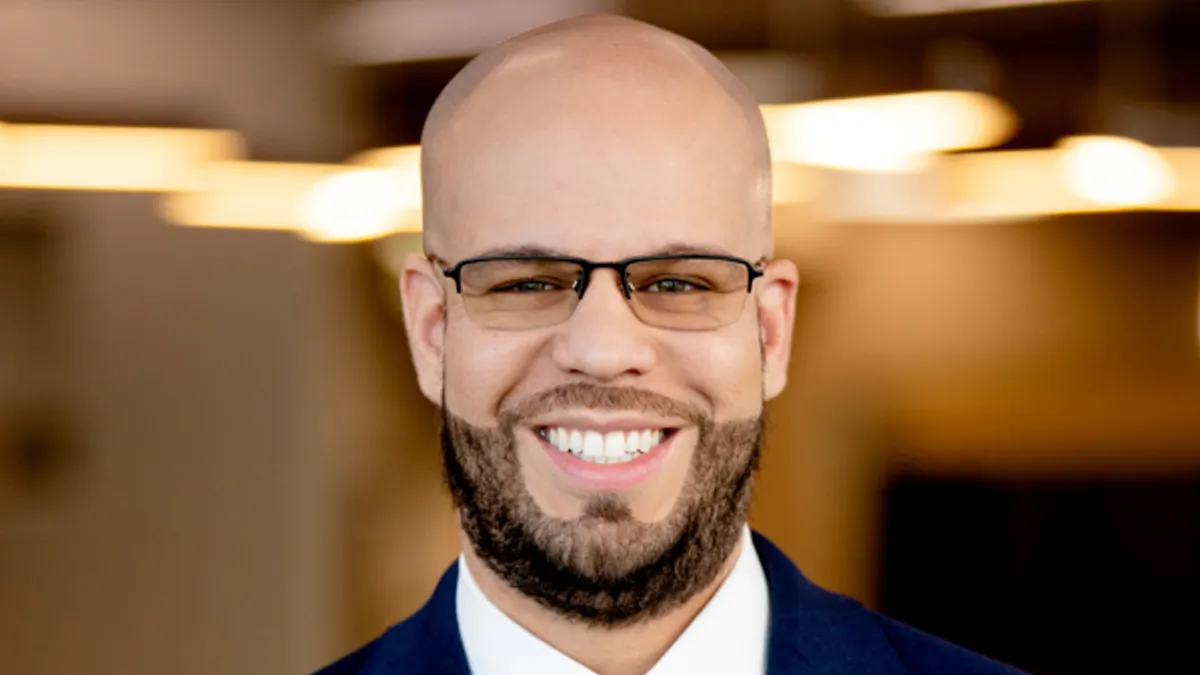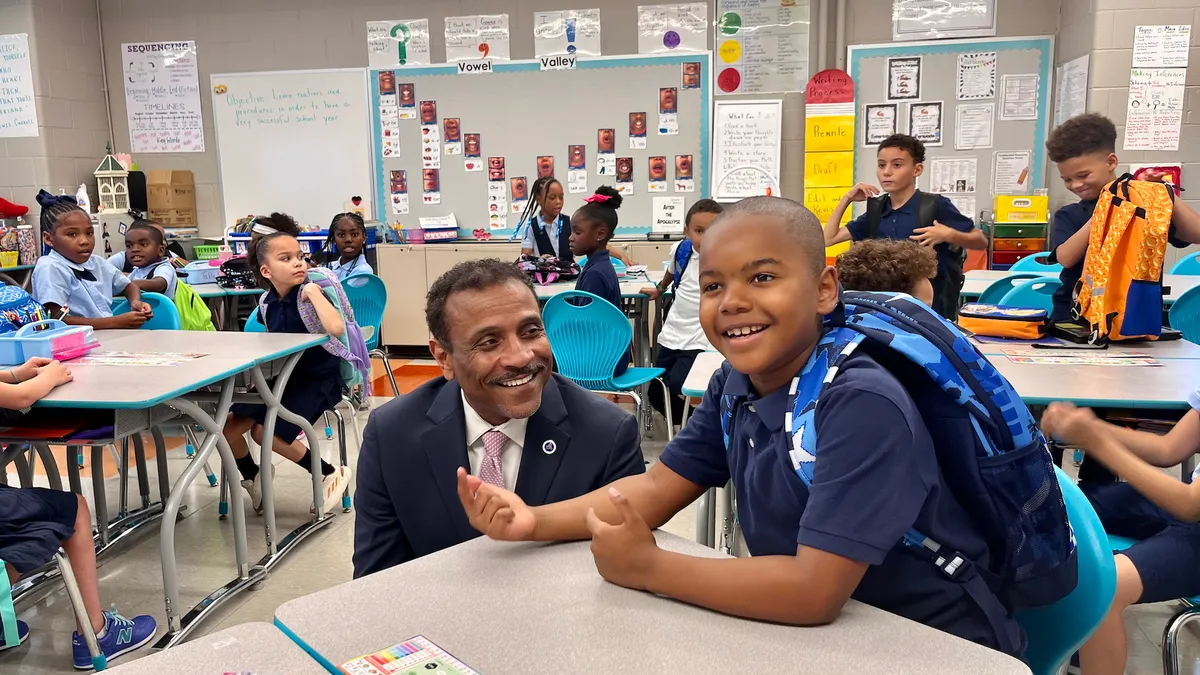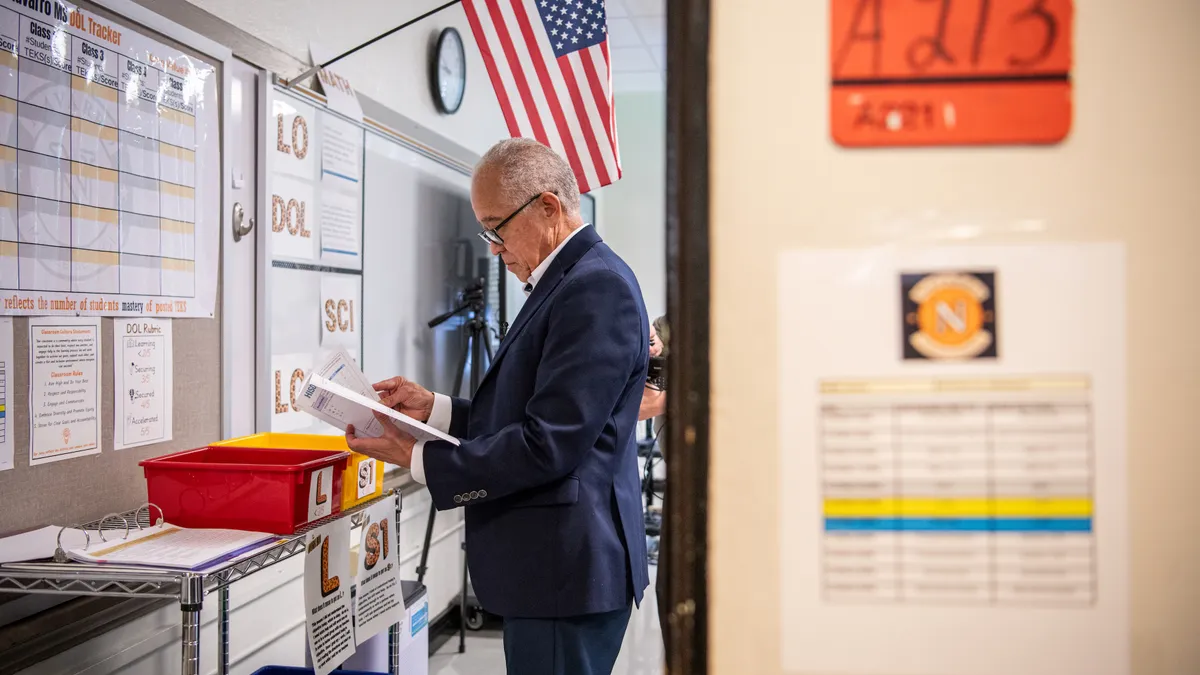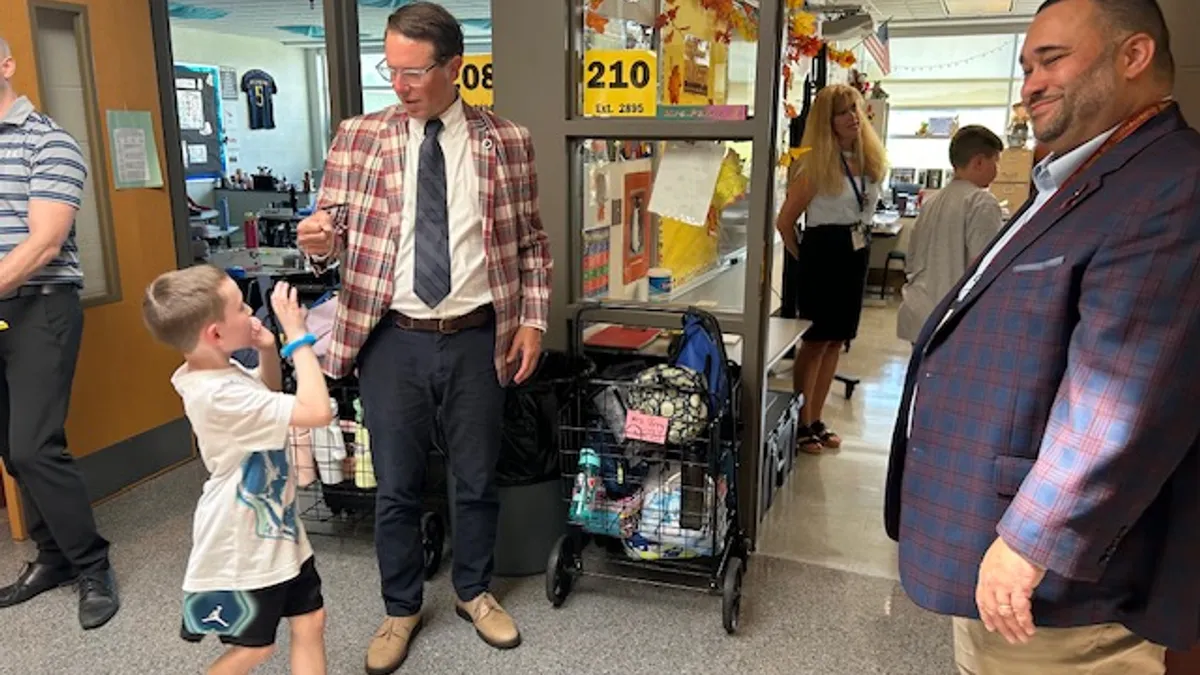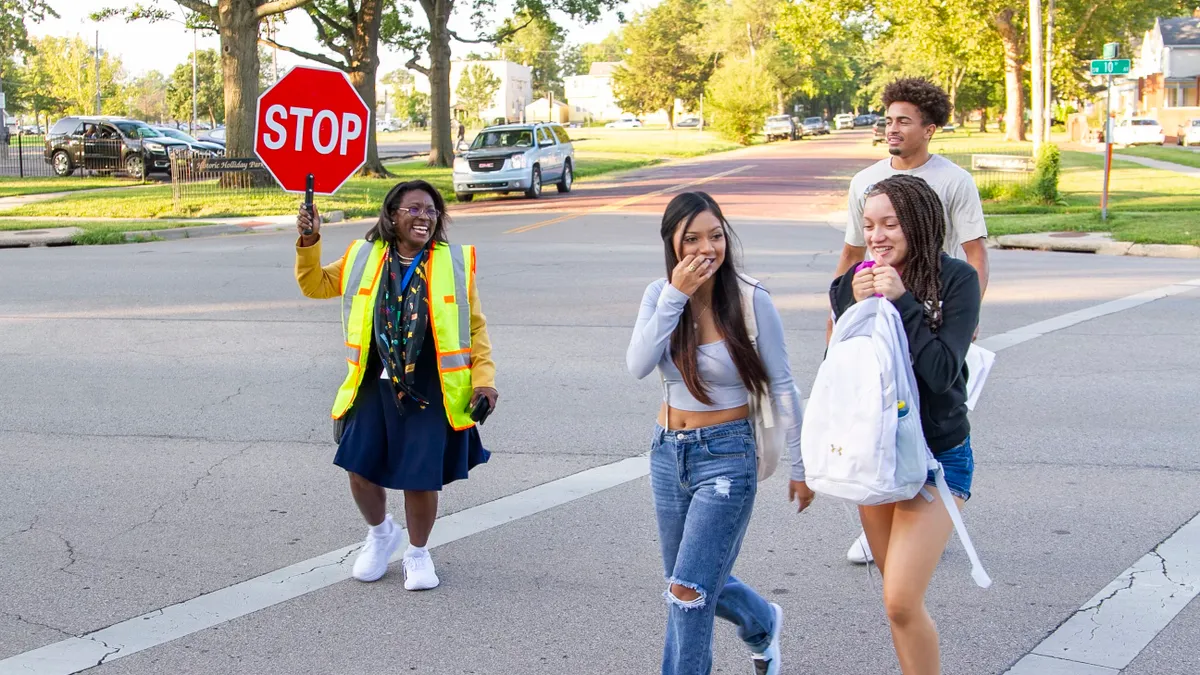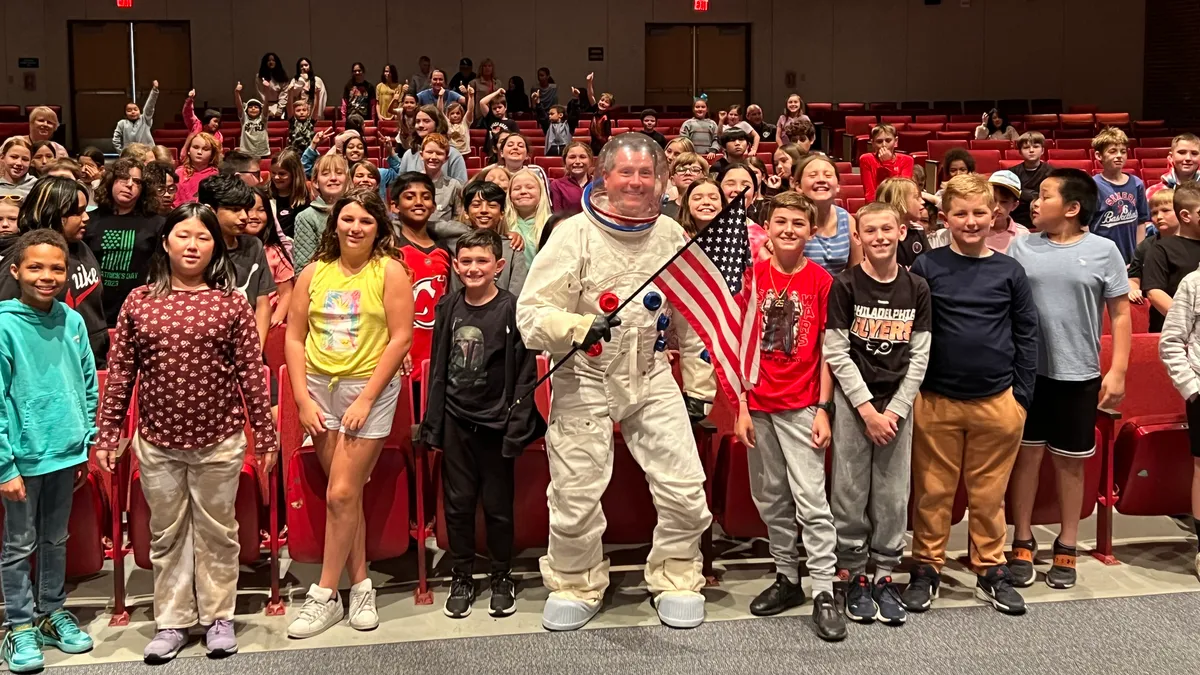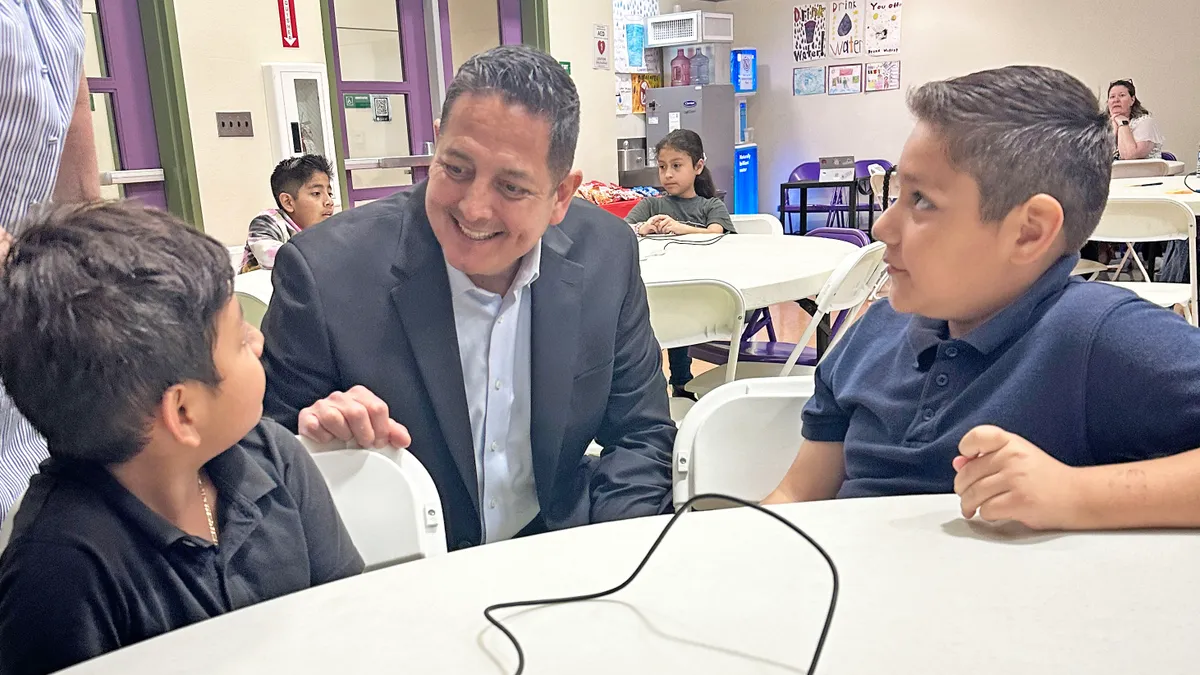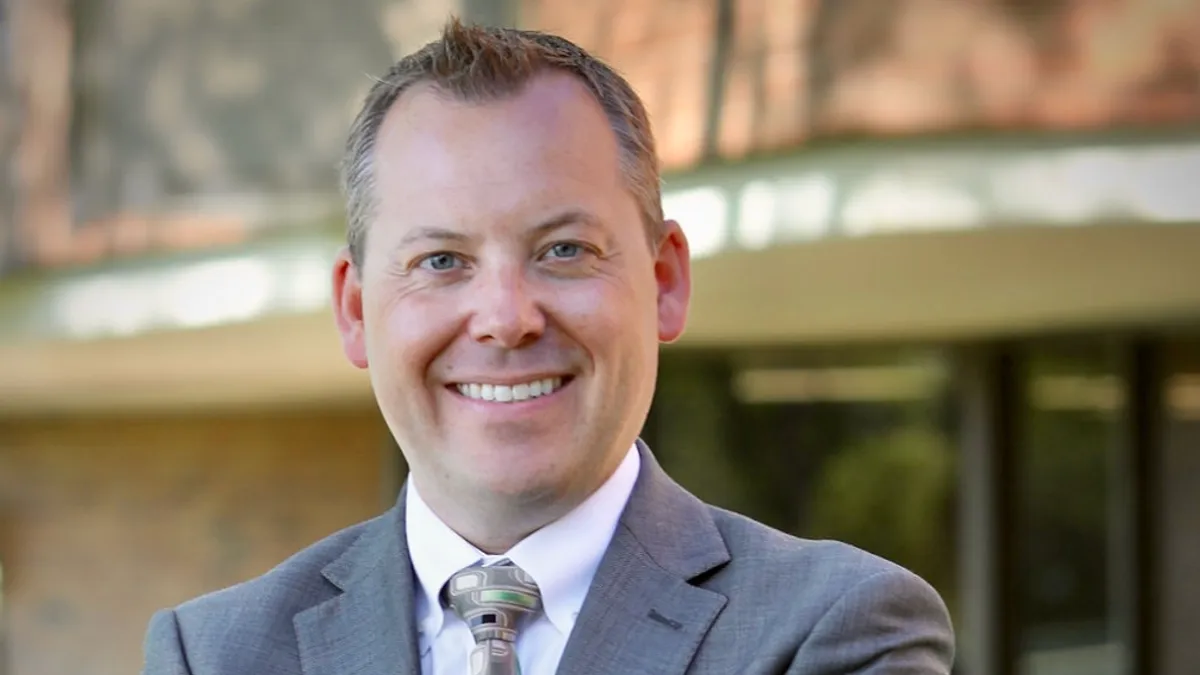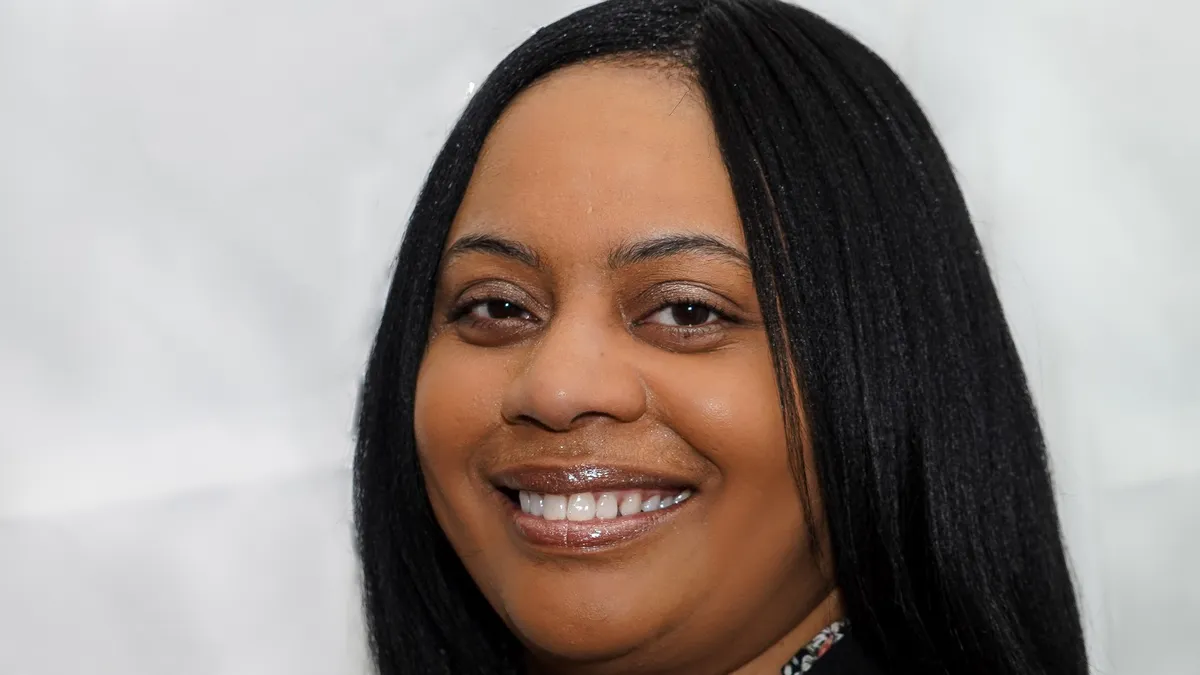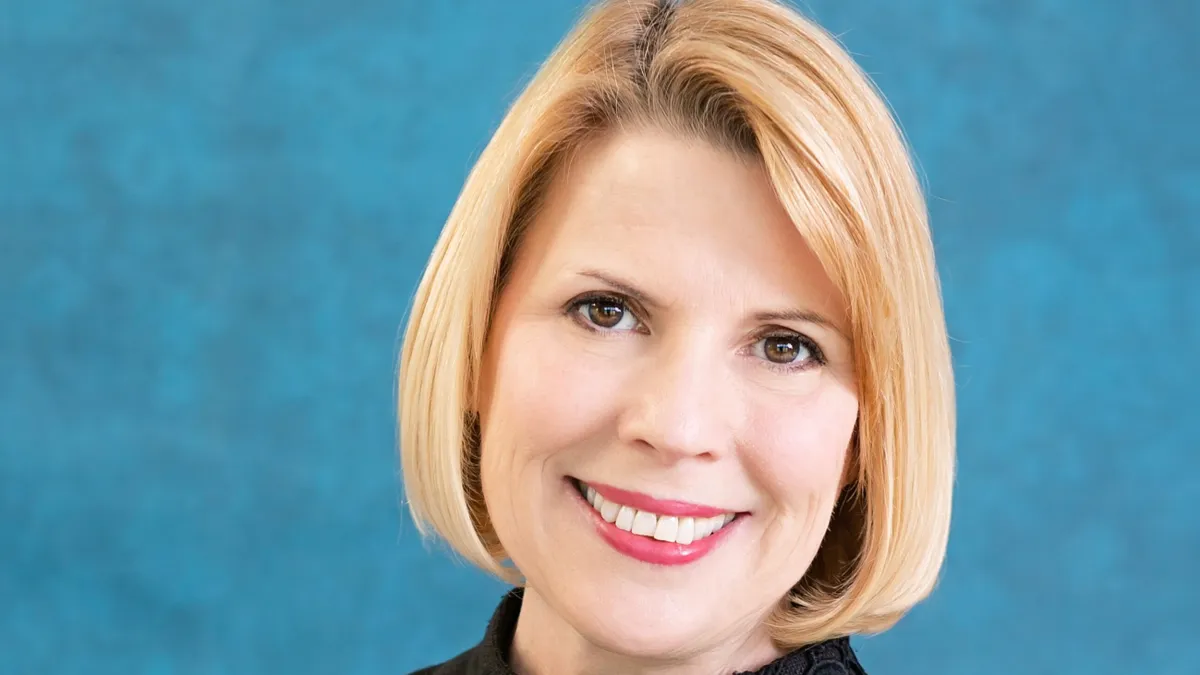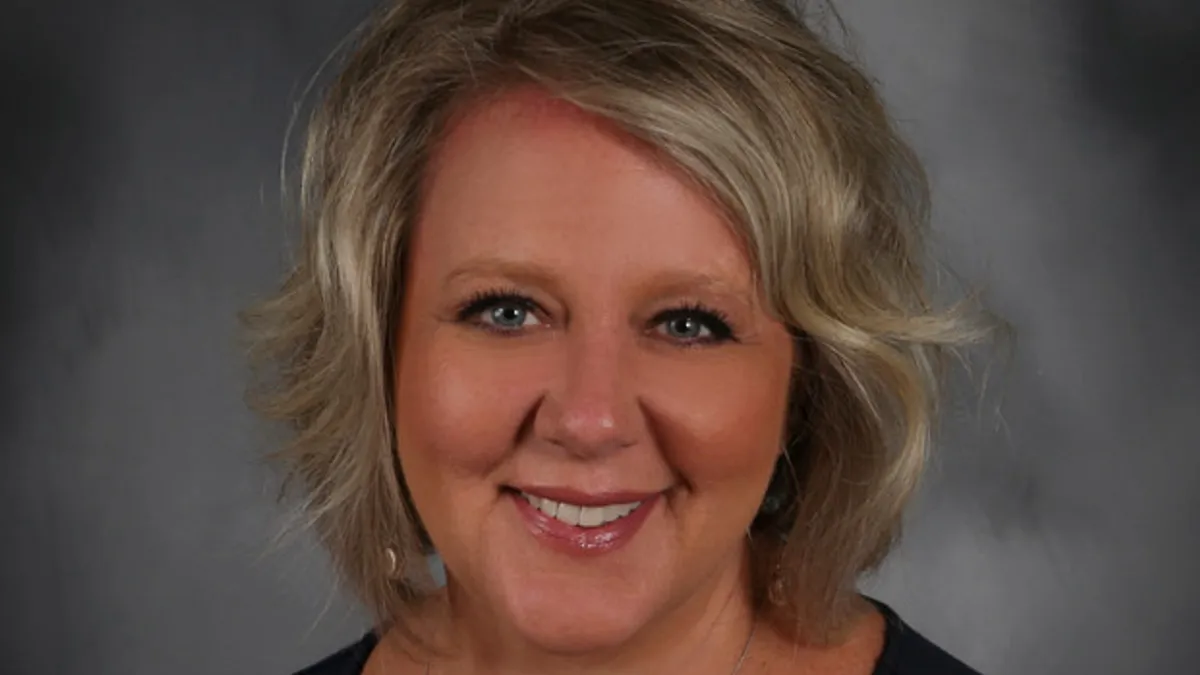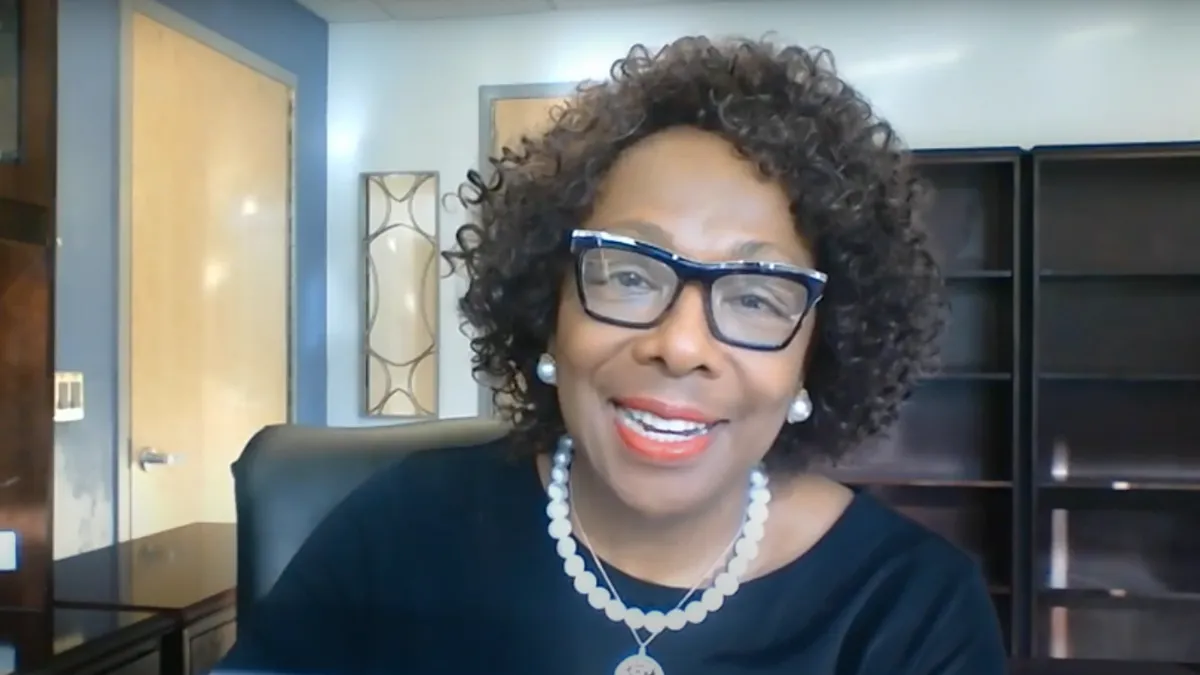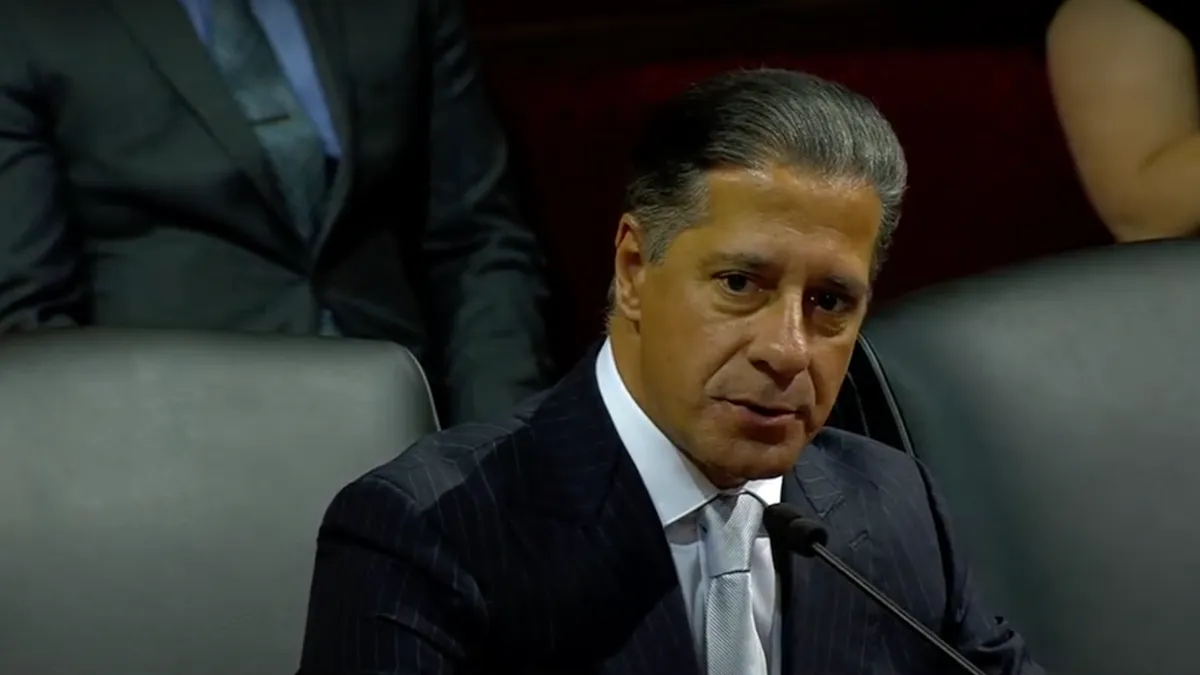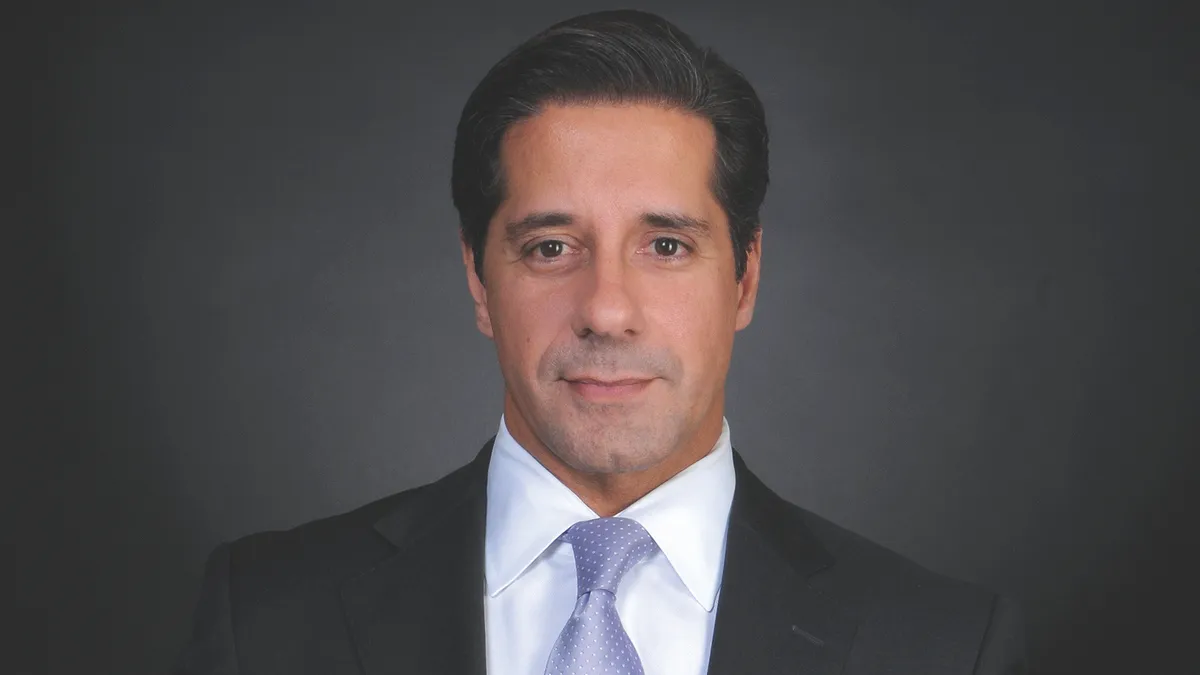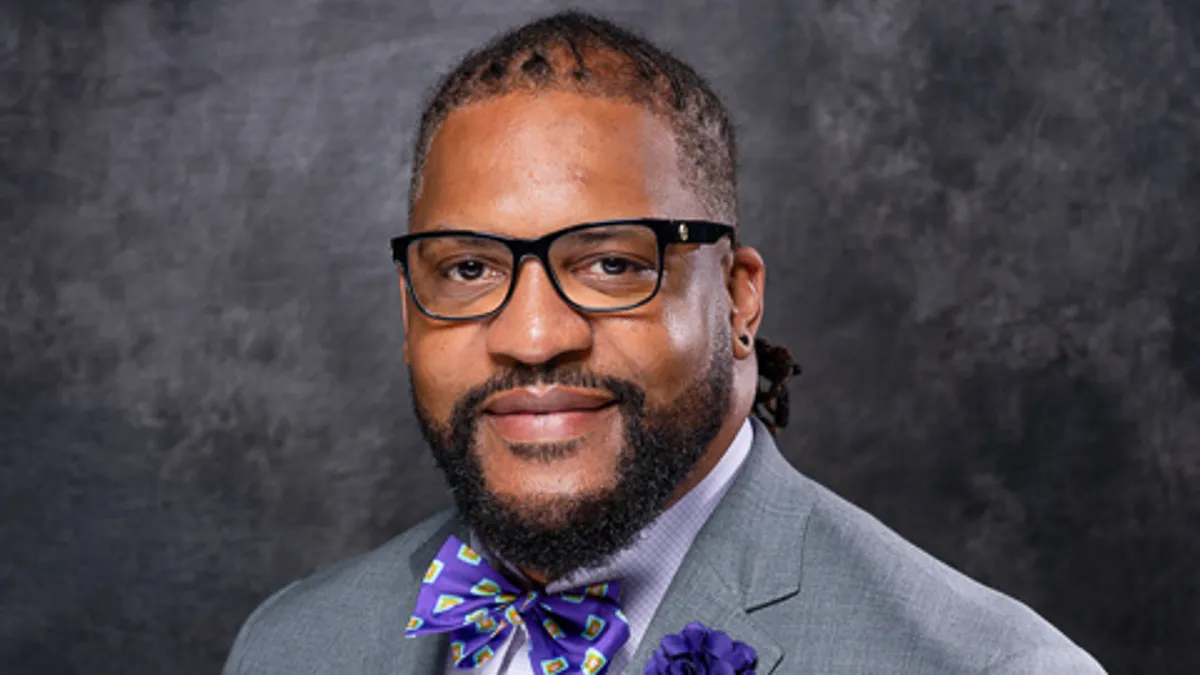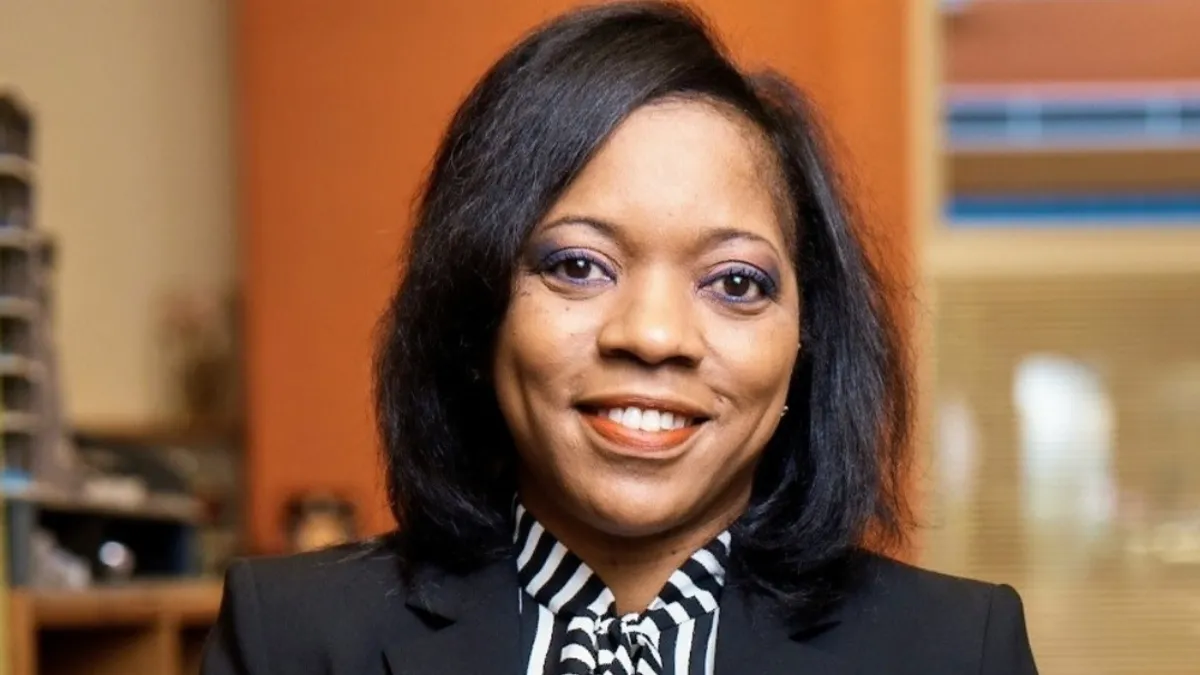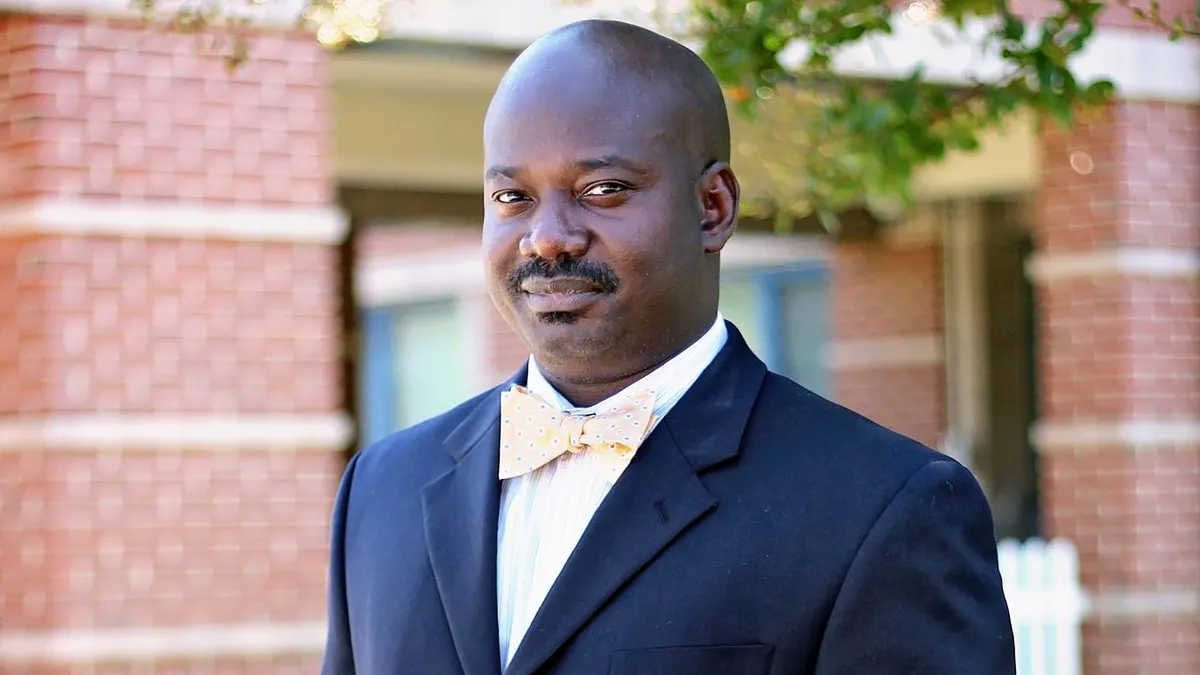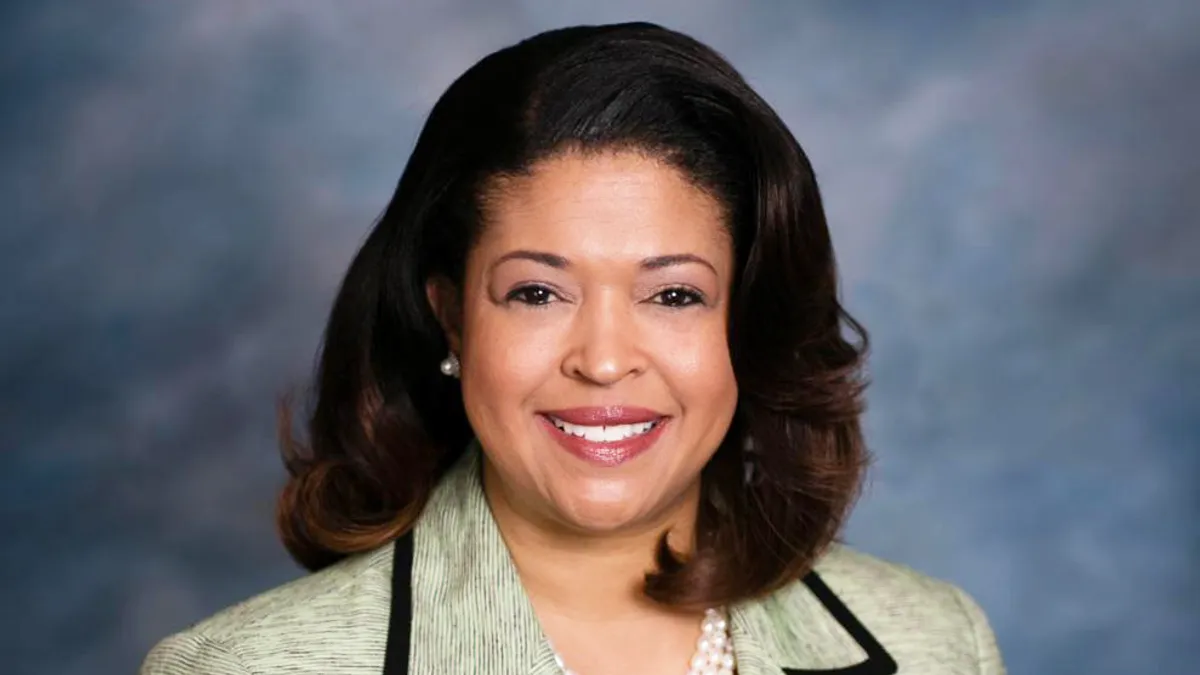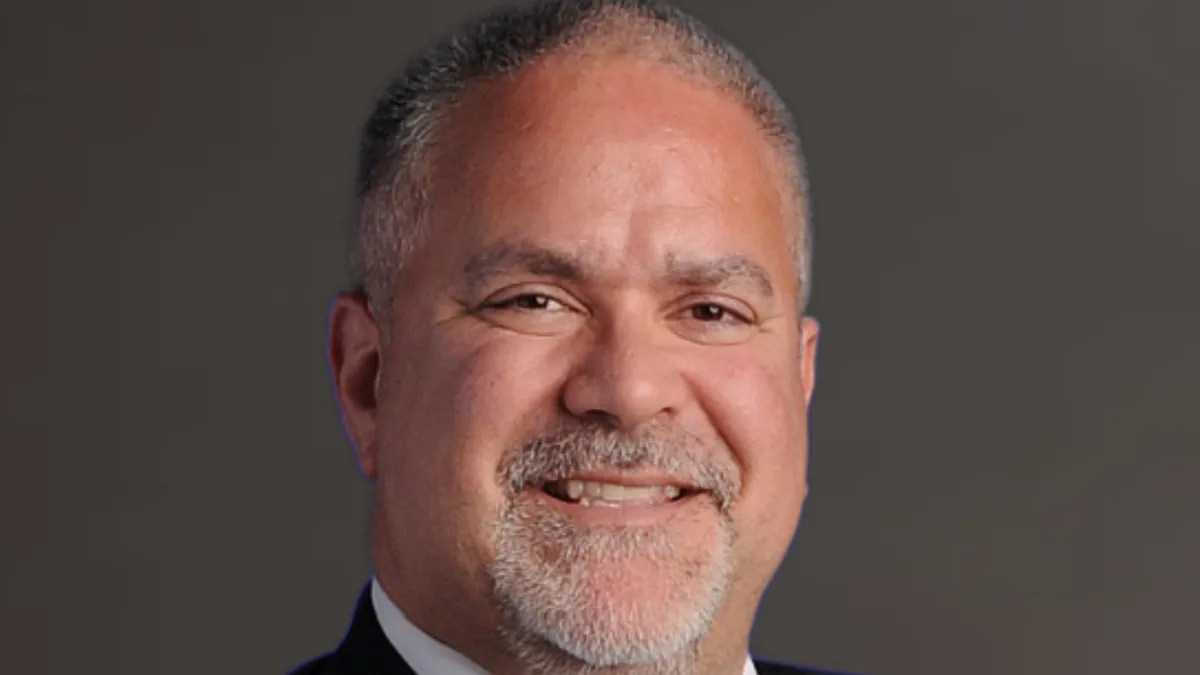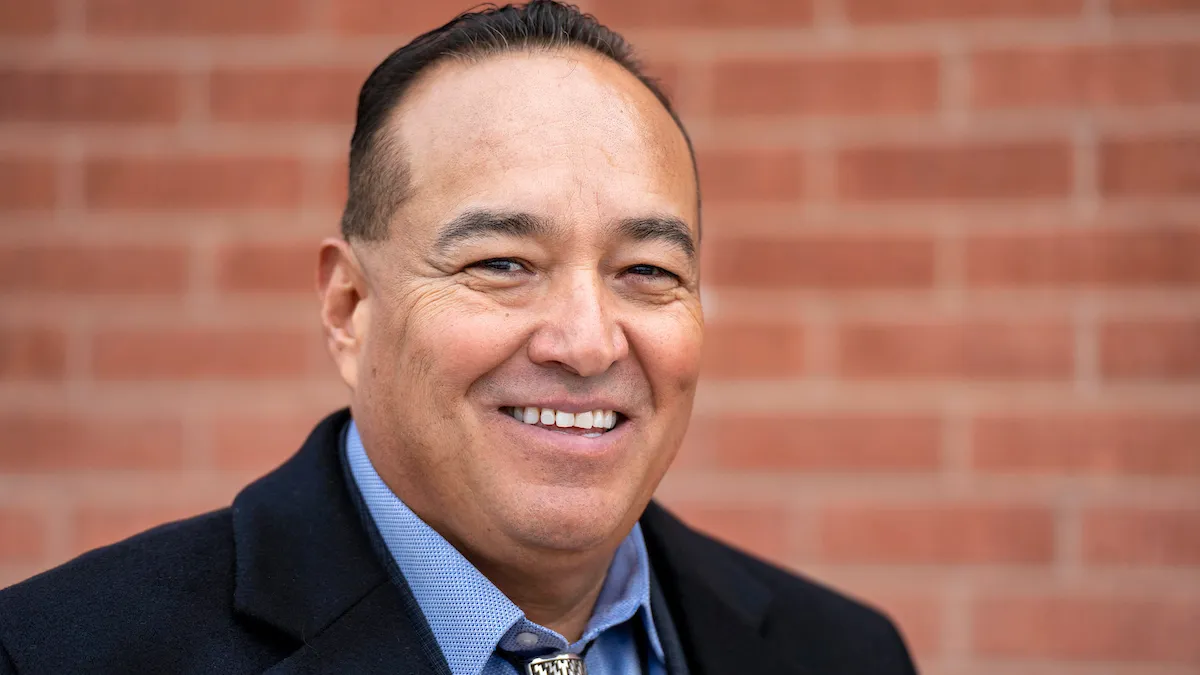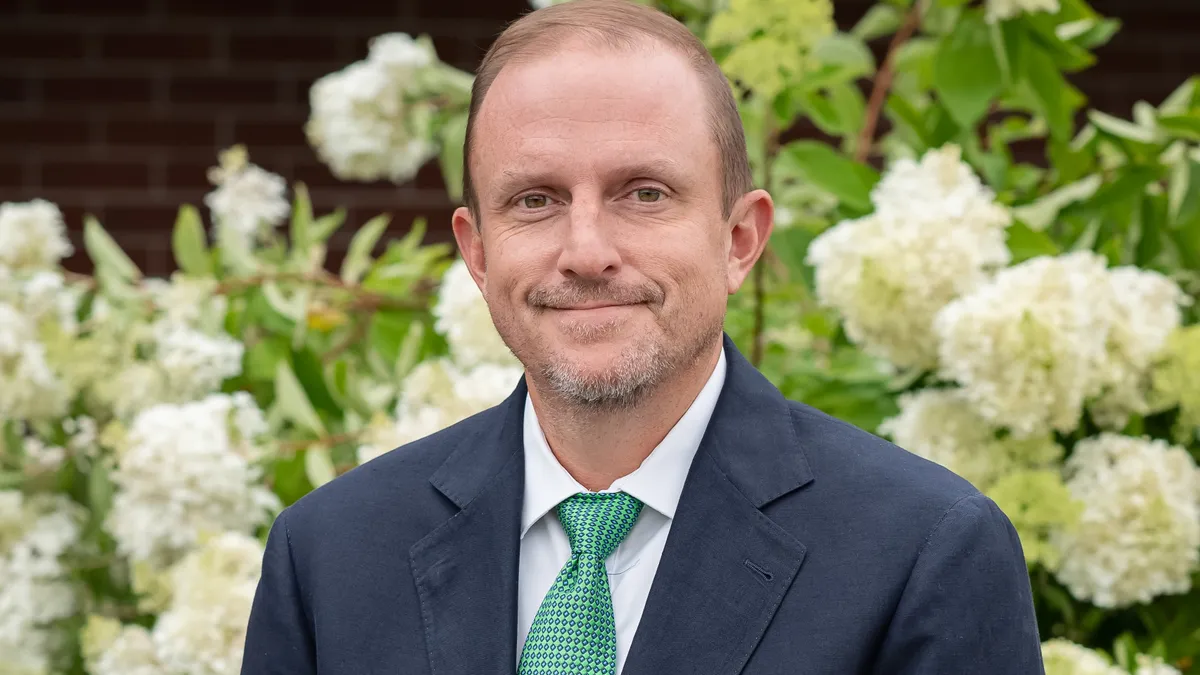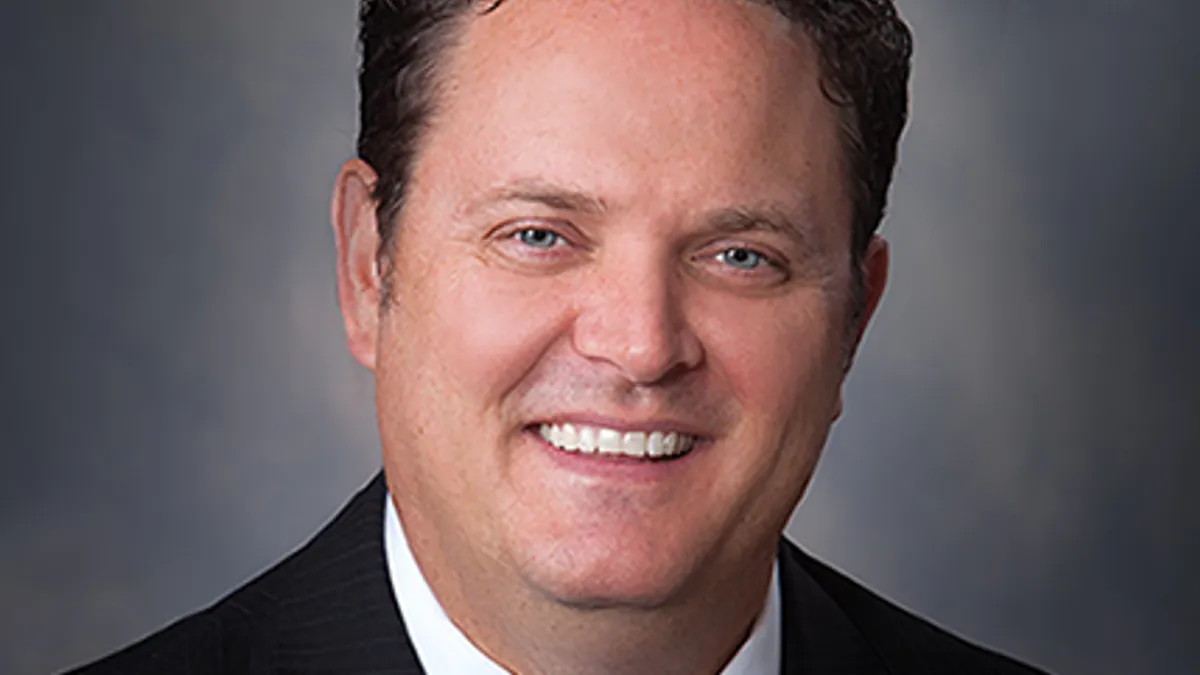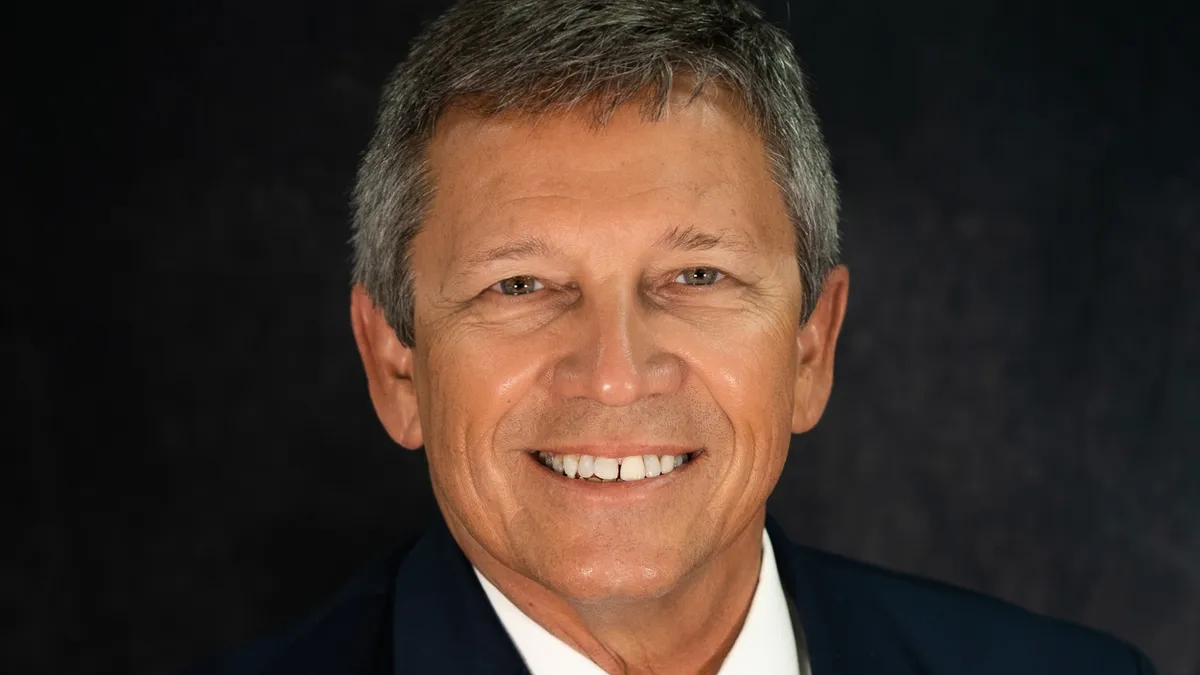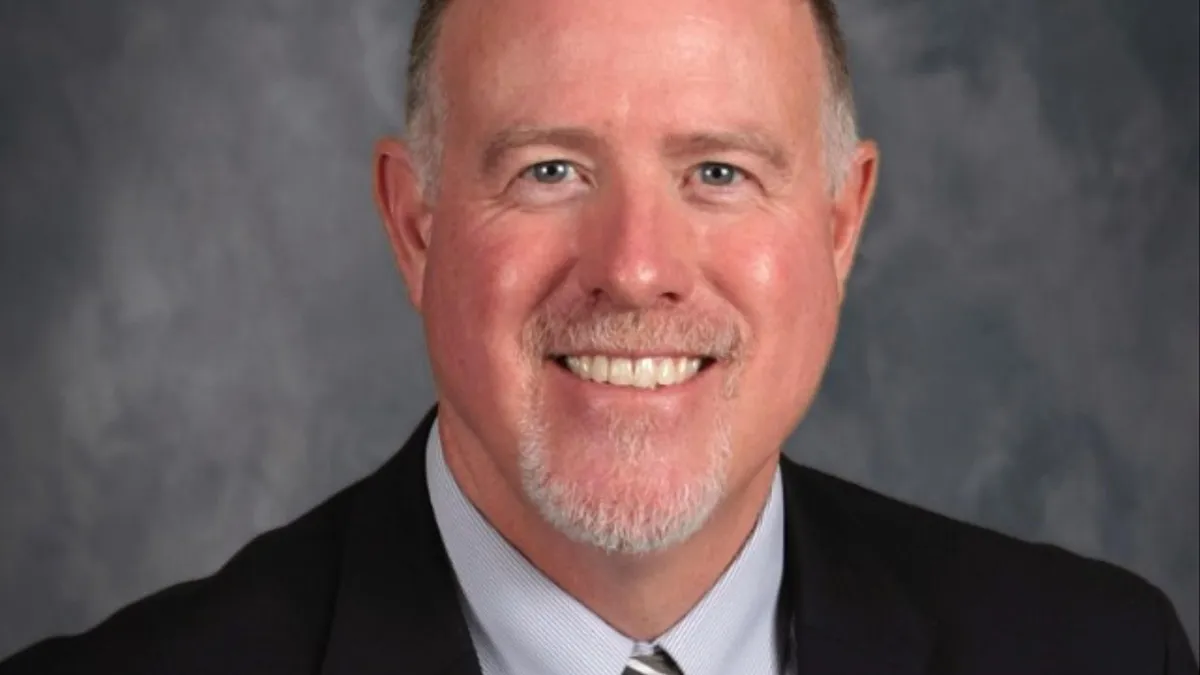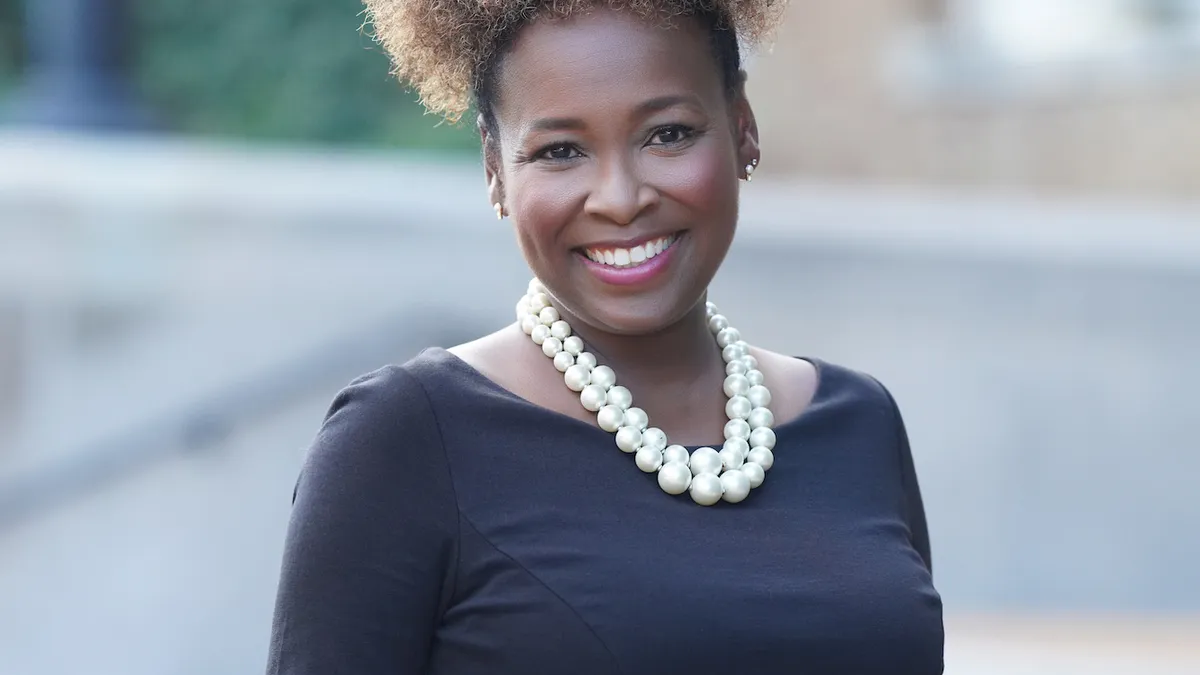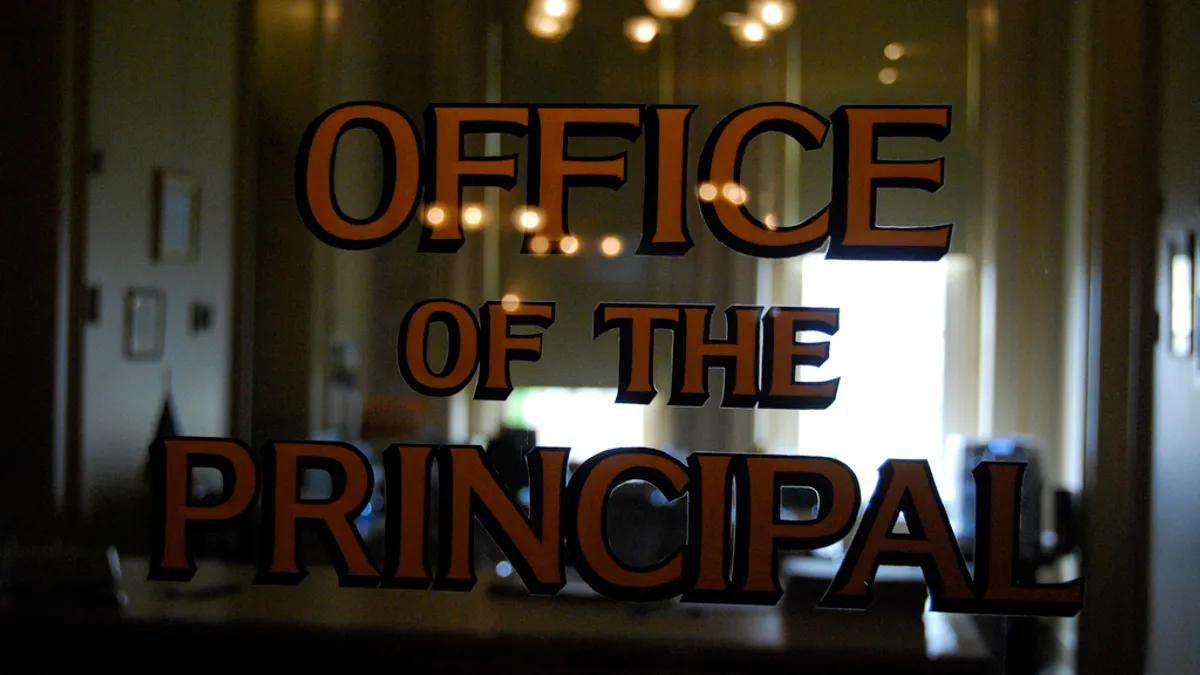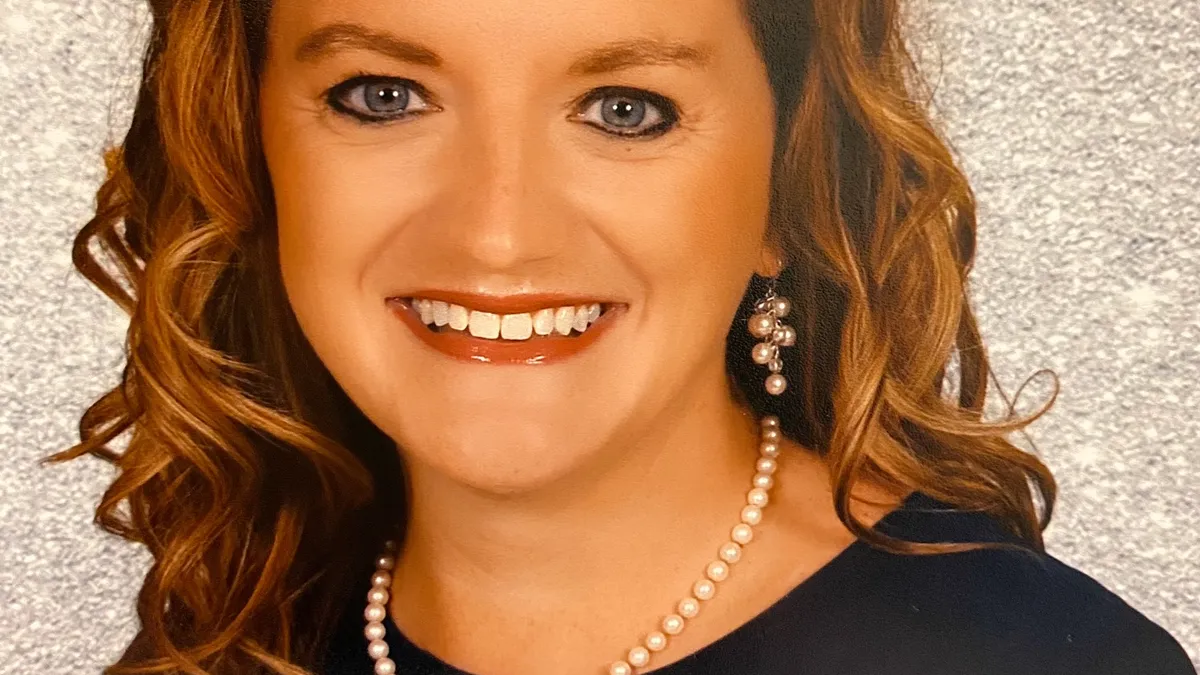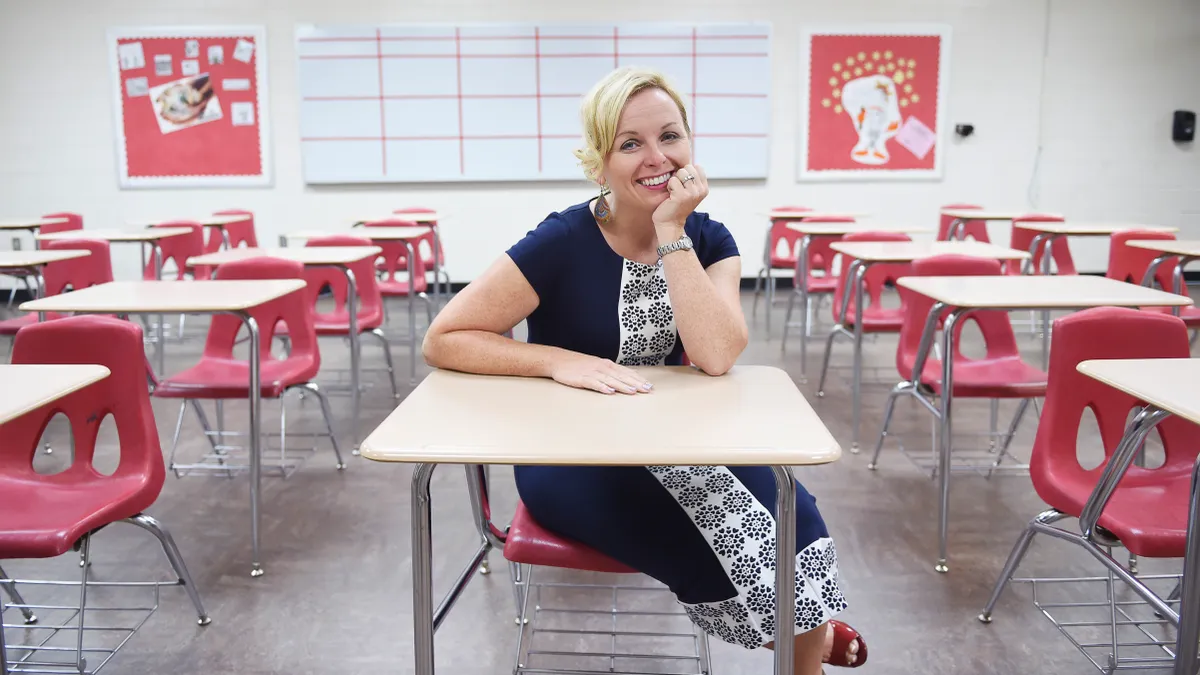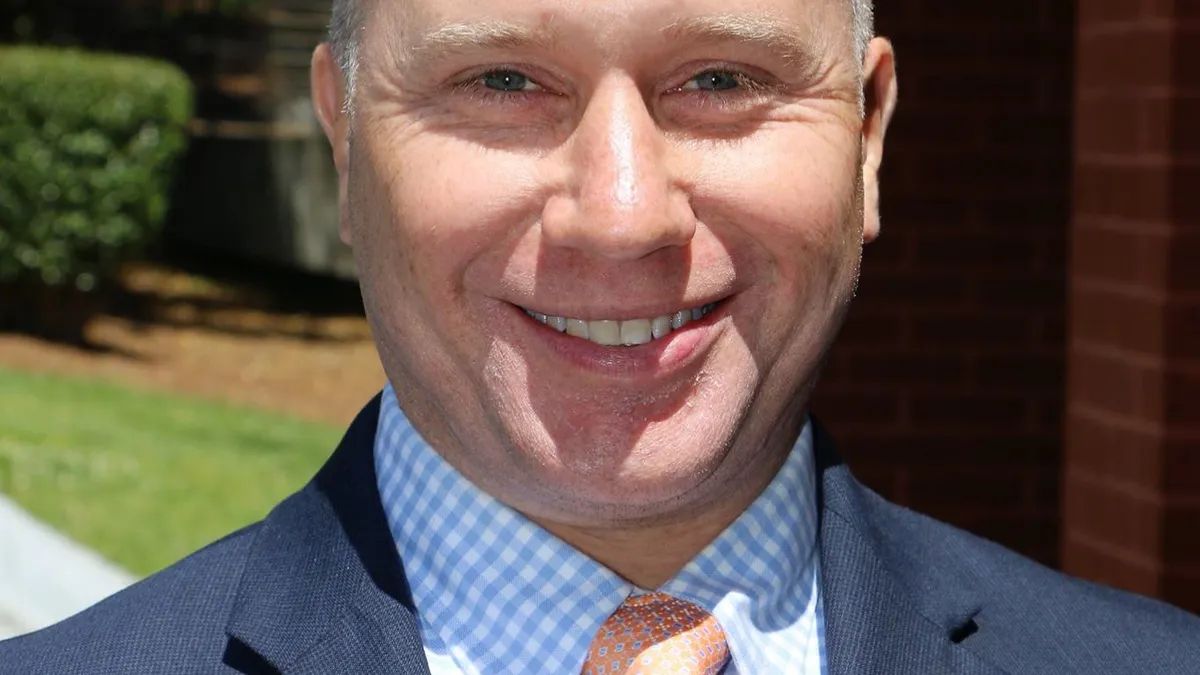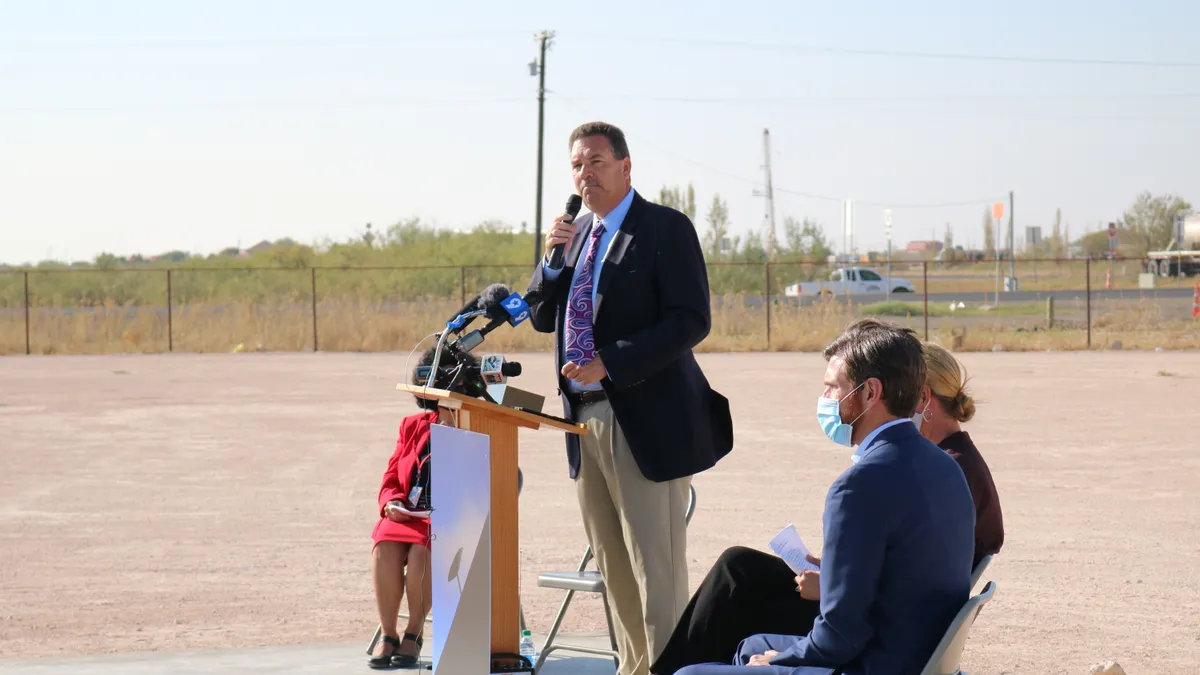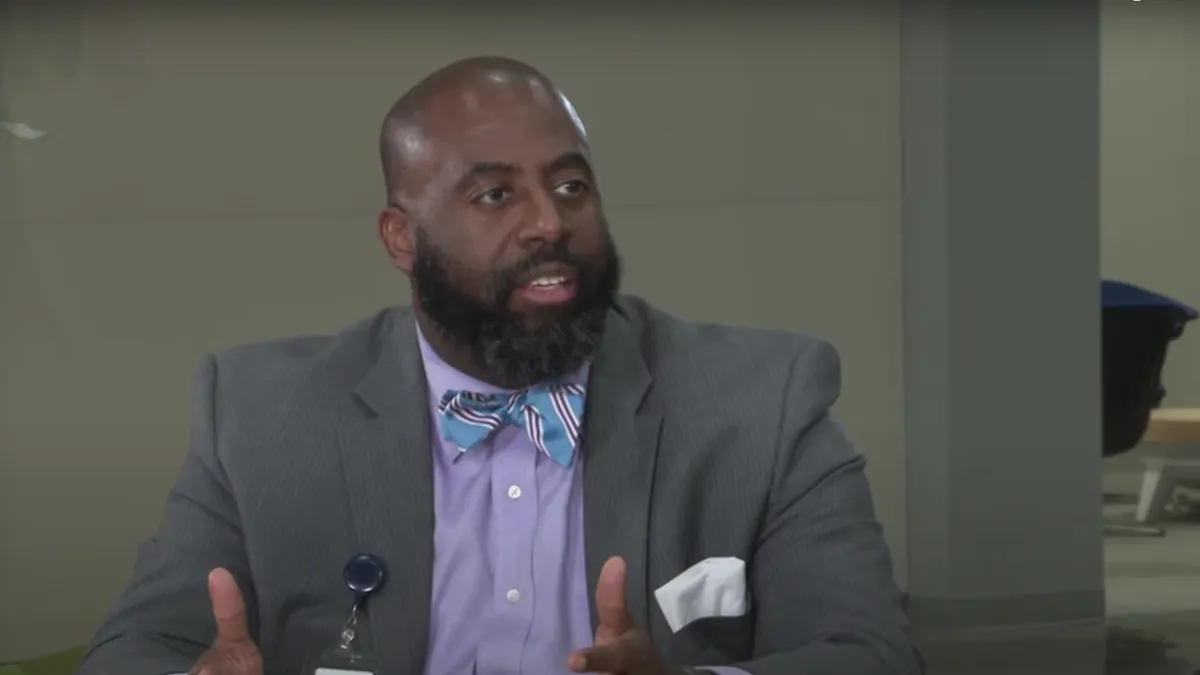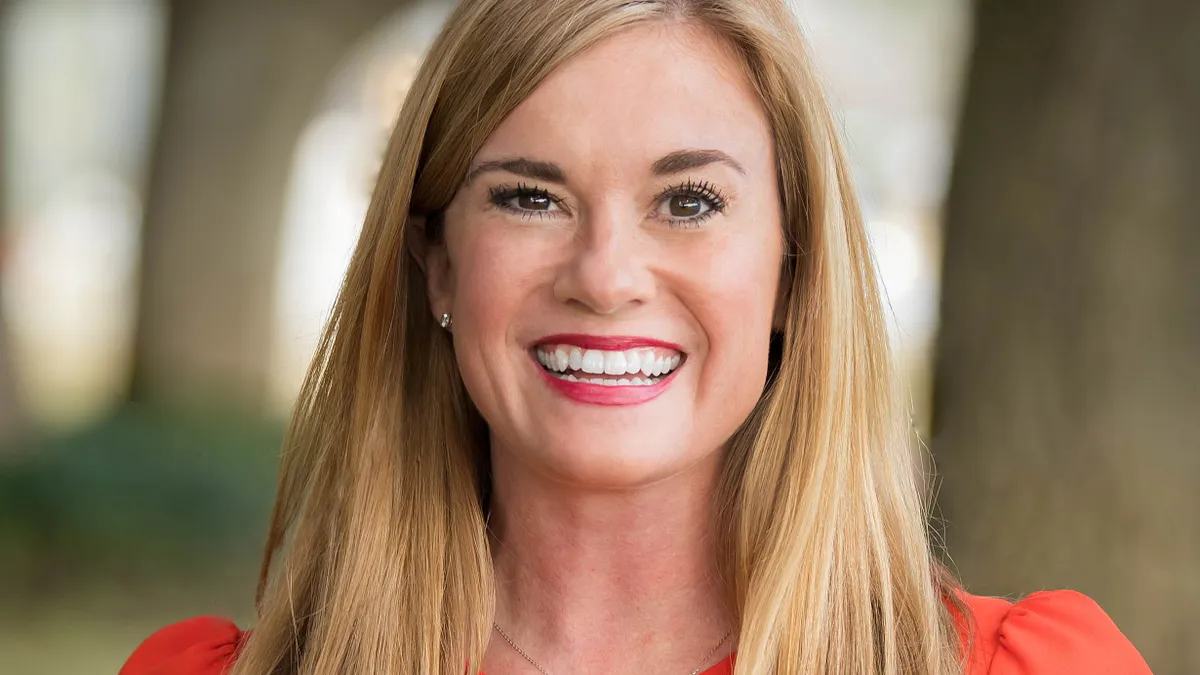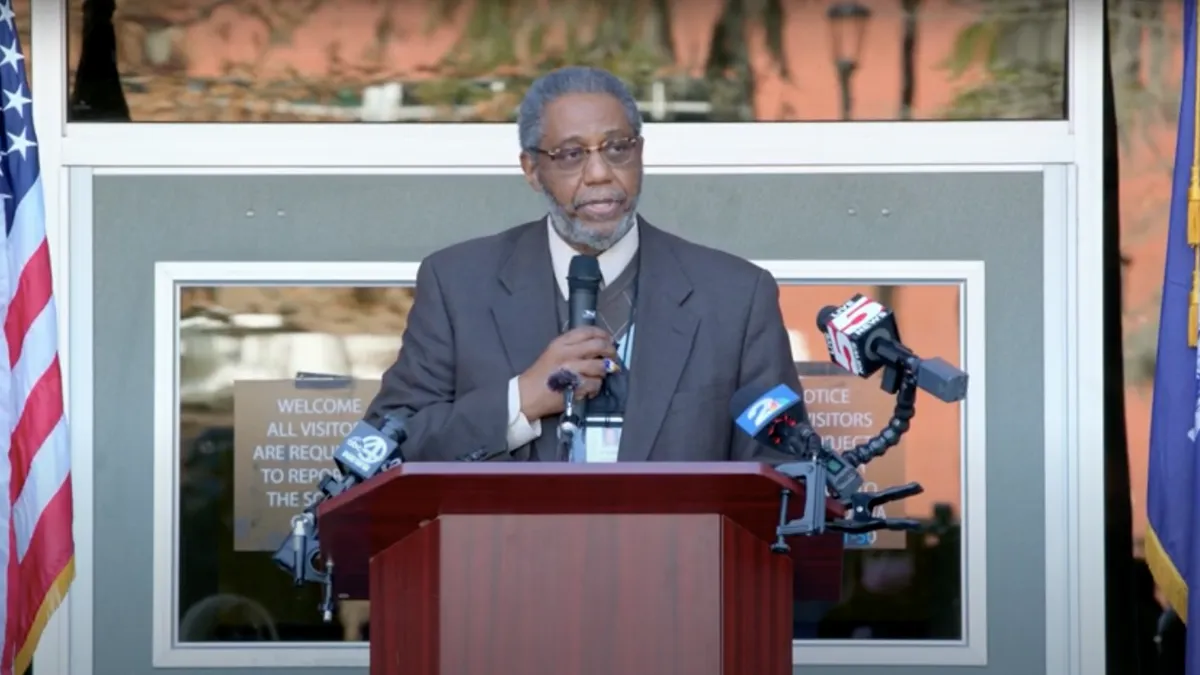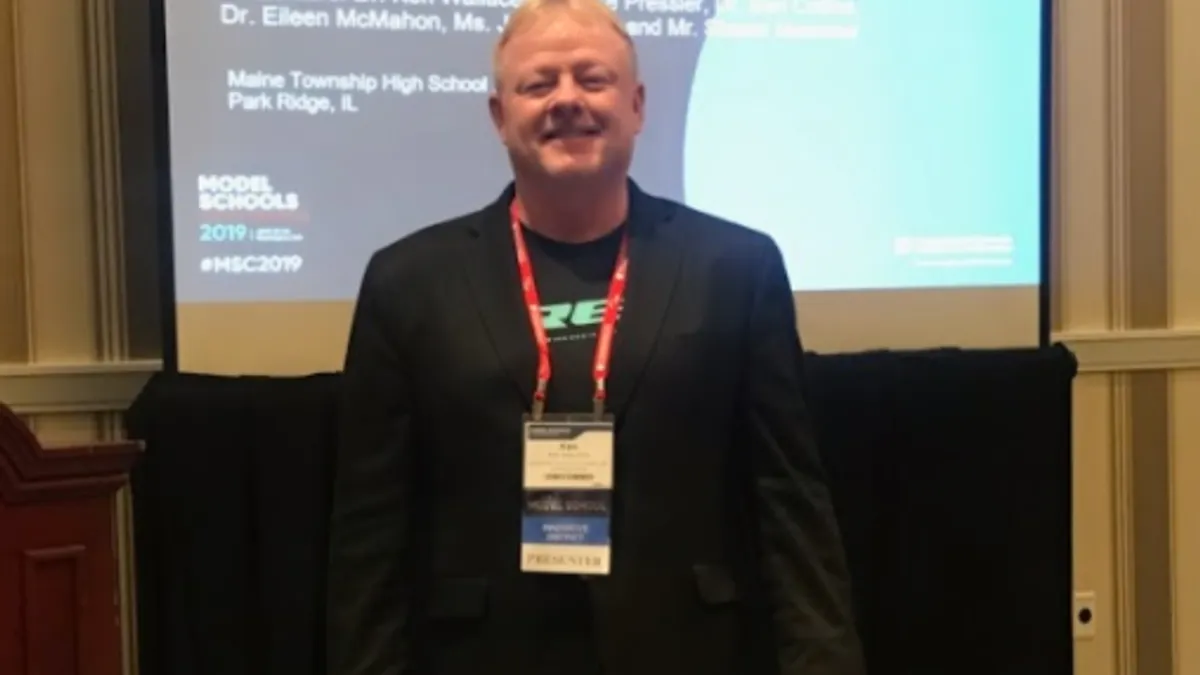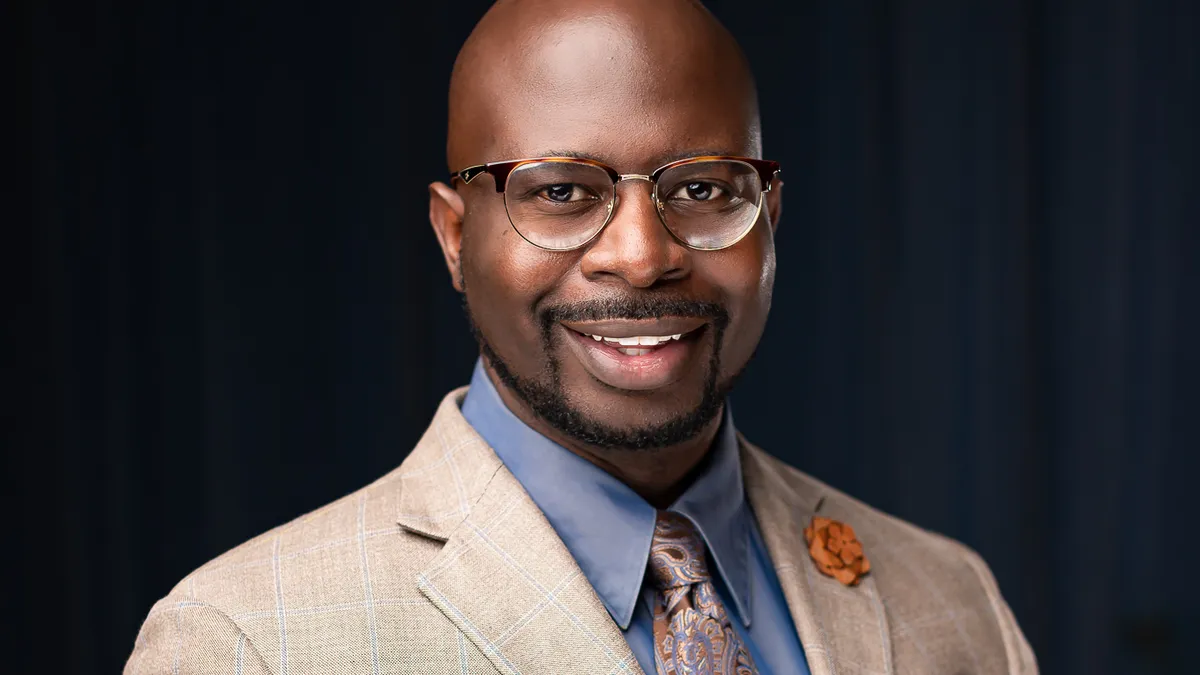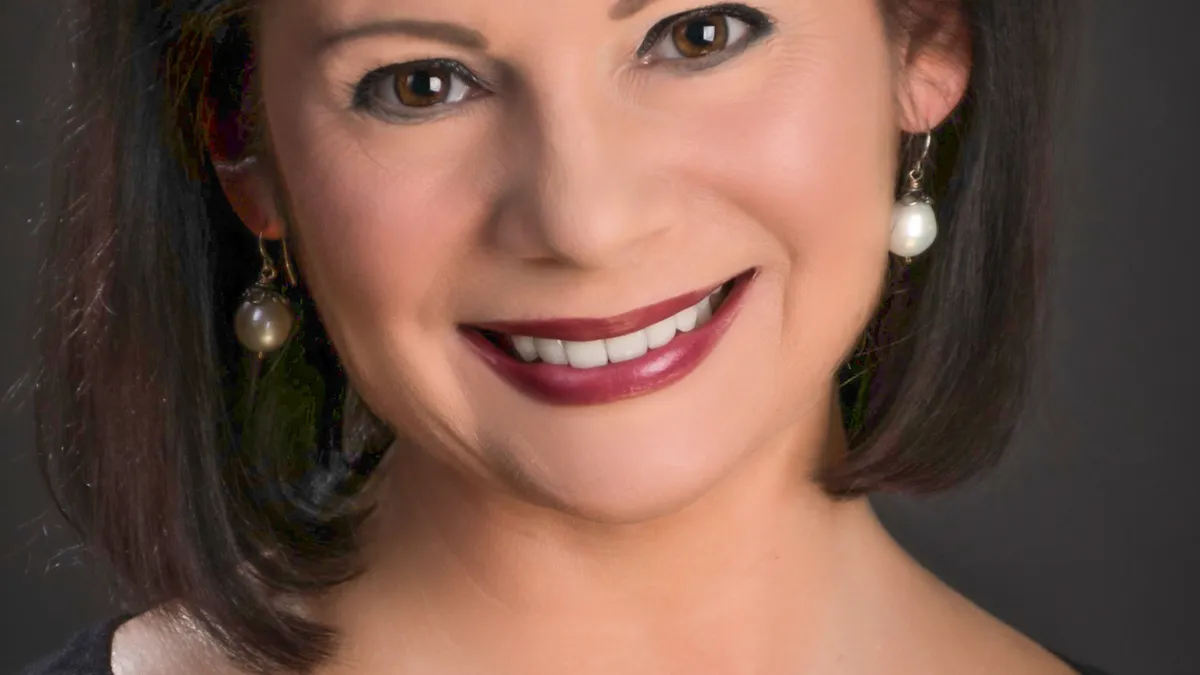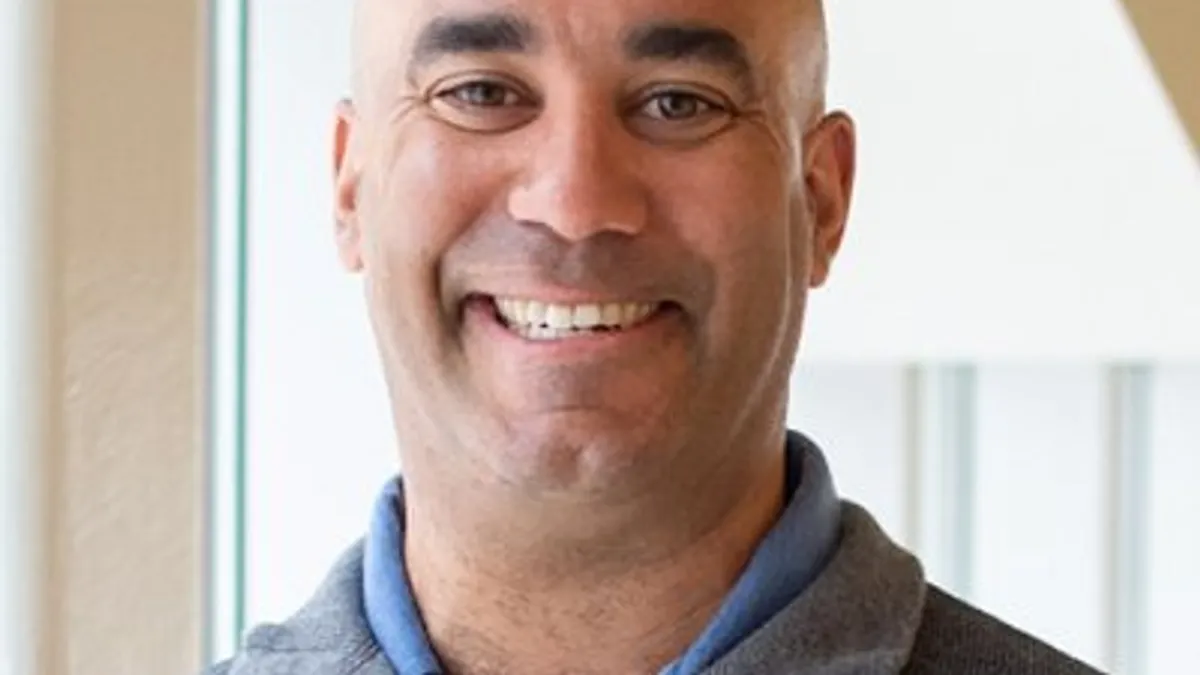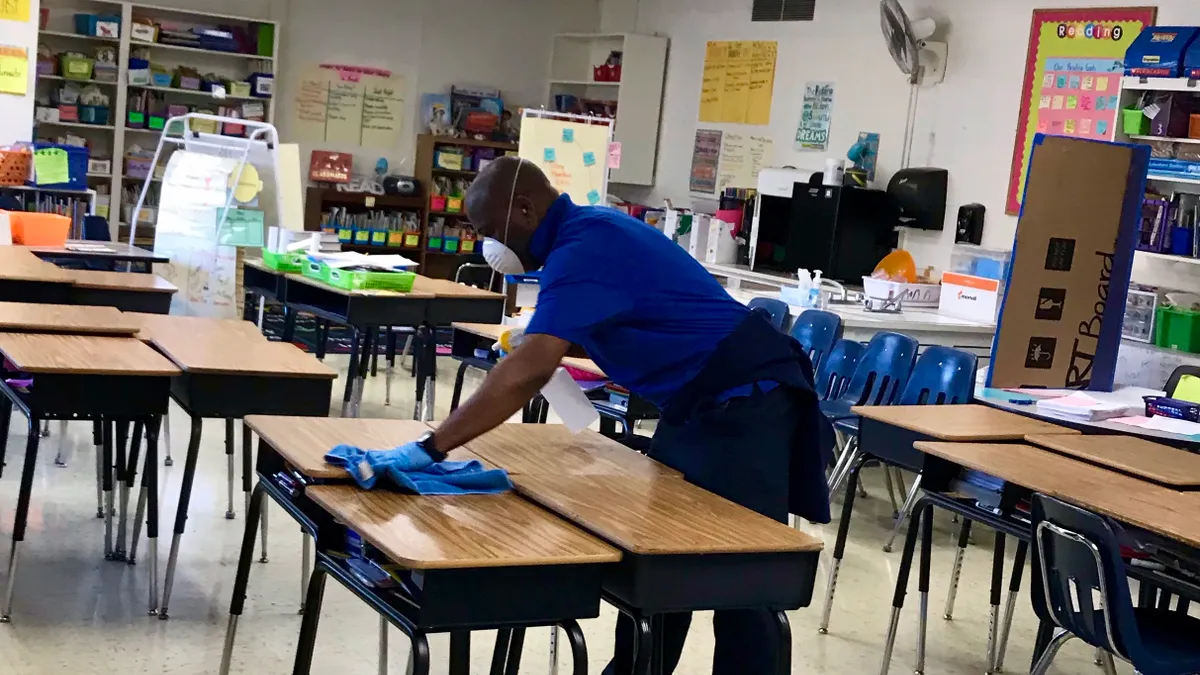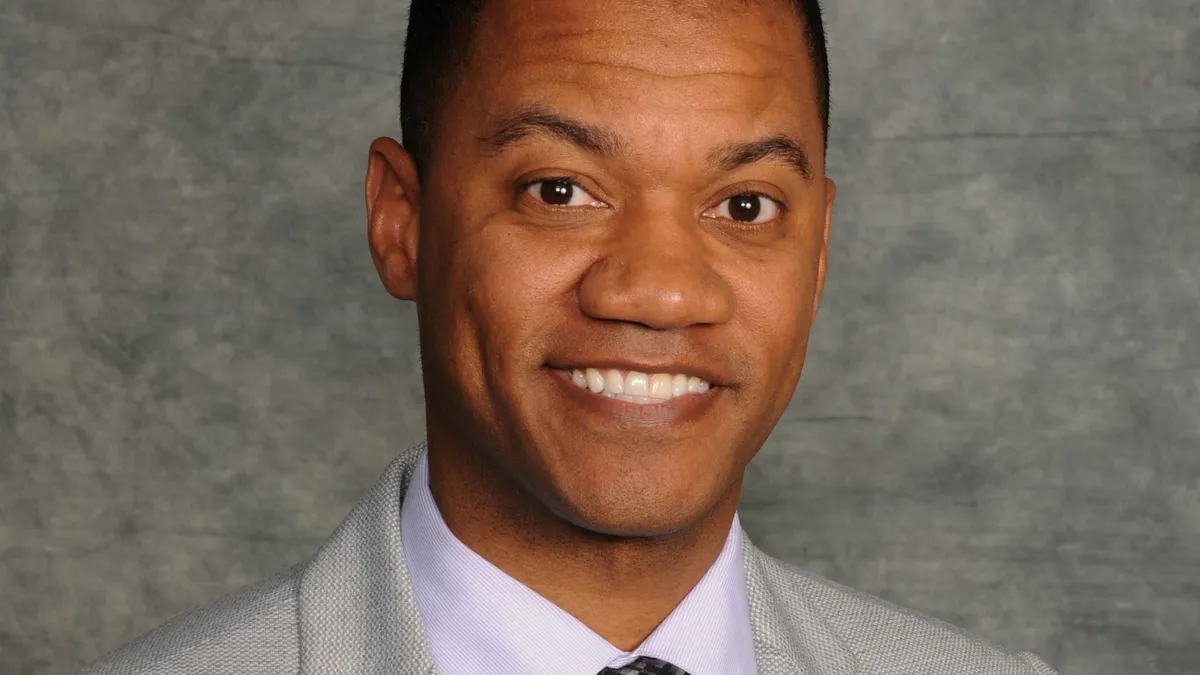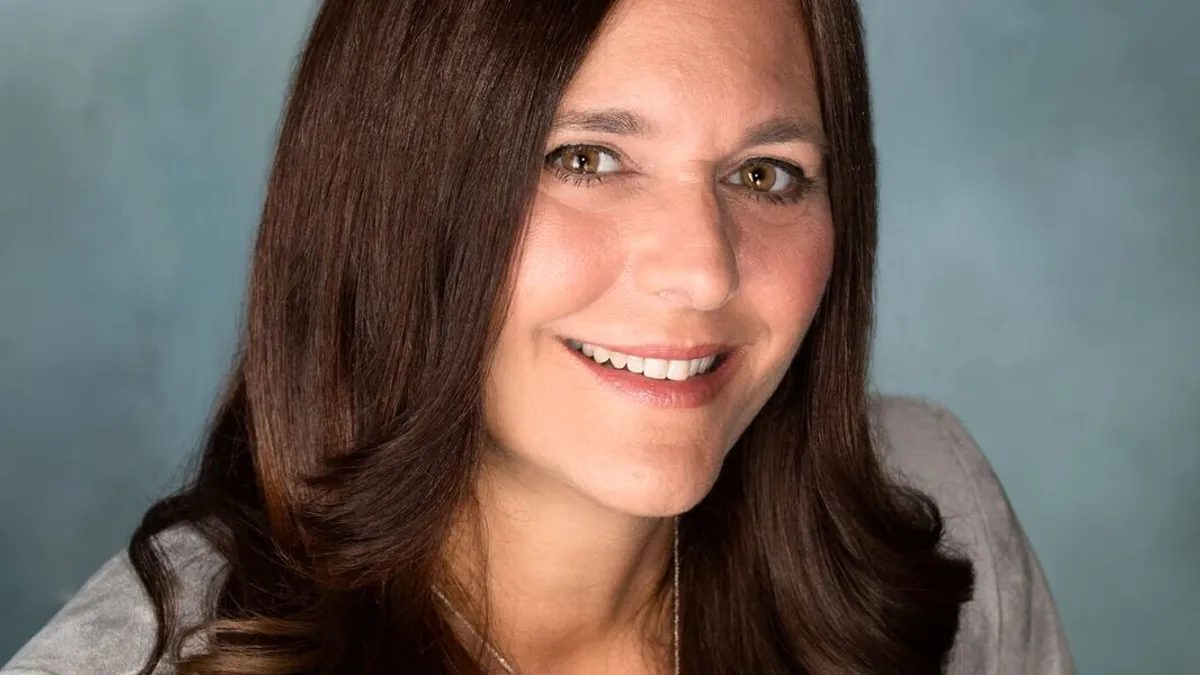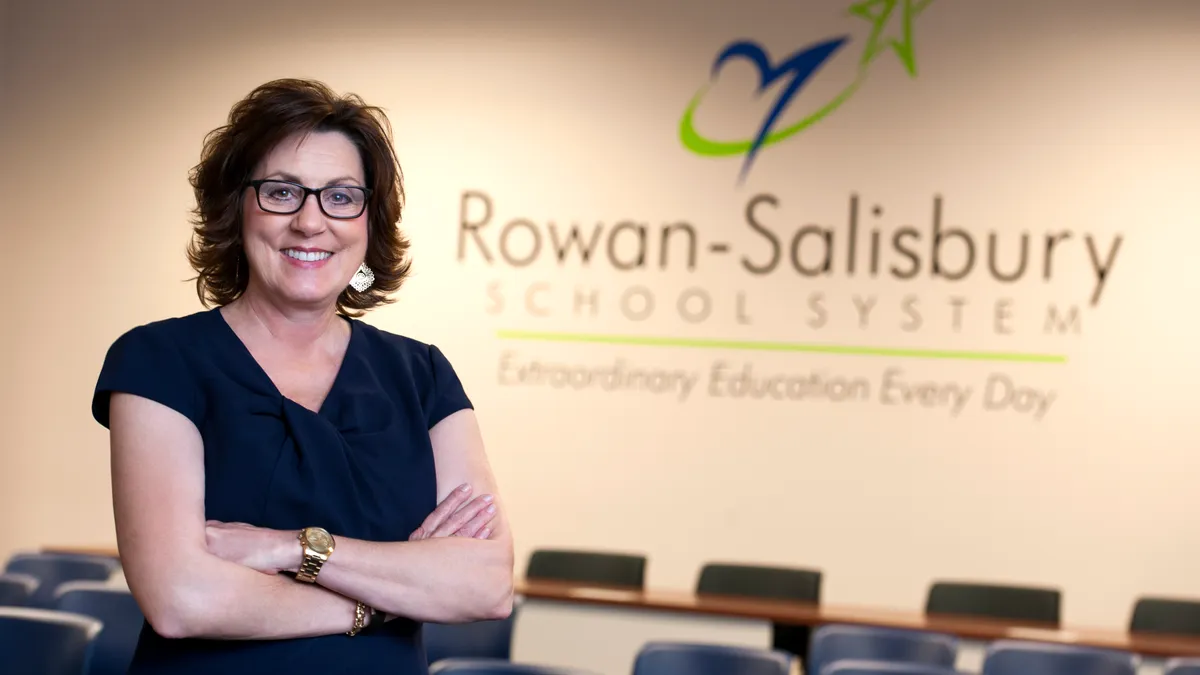Lessons In Leadership is an ongoing series in which K-12 principals and superintendents share their best practices and challenges overcome. For more installments, click here.
After 27 years as a district leader, 13 of which have been spread across two tenures as superintendent of Dallas Independent School District, Michael Hinojosa is set to step down by the end of the school year — for a second time.
Hinojosa, who returned to Dallas as interim superintendent in 2015 following his first retirement, has developed a reputation for decisiveness, determination and unwavering commitment to the students and families of Dallas. He’s notably remained calm, collected and respectful even when occasionally finding himself at odds with state leaders on various issues.
K-12 Dive recently caught up with Hinojosa to discuss his accomplishments in Dallas, how he navigated sometimes tense relationships with lawmakers, the importance of succession planning and more.
K-12 DIVE: This is your second retirement. Do you feel you accomplished all of the things that brought you out of retirement the first time and back to Dallas?
MICHAEL HINOJOSA: Well, the job's never done. I am proud of the progress we've made. There are two things we quite didn't get all the way to.
The one thing I made no progress on until this year was we had this issue with our procurement systems that were not working well. Part of it was the sins of our past. In the 1990s, Dallas had five superintendents in five years, and one went to federal prison. Then, during my first term, we had an issue with a vendor that was in cahoots with our technology guy. And then we had a procurement card scandal.
We're about 70% through the project we've been working on for the last nine months, and we think by the time the school year starts, we'll be there.
The other one we've made a lot of progress on, but we're still behind, is the achievement of African American students. We've improved more than the state, but it's still our lowest-performing student group, which is a bit of a disappointment.
But with those two things identified, yeah, I feel pretty good about some things we've gotten done, and certainly a lot of things people said were impossible. There were a lot of successes, and I've been very blessed to work with a lot of high-quality people to get some things done.
What are you the most proud of this time around?
HINOJOSA: Well, I think there's three things I'm most proud of. One of them started during my first tenure in Dallas.
When I inherited the job, we had 1,300 classrooms that did not have a certified bilingual teacher, and we were under state watch. It was so bad, we might have an elementary school that would have a 2nd grade bilingual teacher but wouldn't have [one for] 1st grade or 3rd grade. There was just a huge shortage.
In Dallas, we have 48% English learners. At that time, it was about 30% English learners. So what we did is we put a plan together. And we took all of our [bilingual] teachers we had, and we put them at pre-K. And then the next year, we added 1st grade and 2nd grade, etc. etc.
We had to go to Puerto Rico, we had to go to Mexico, we had to go to Spain to recruit bilingual teachers. And we finally got into compliance. Now we have the best-in-class dual-language program anywhere in the country. Our English learners are way outperforming our other student groups, and we've come from the deficit bilingual model to an exciting dual-language model where you become biliterate.
We actually even in our career institutes have dual-language HVAC that we can teach in both languages. We've gone from one of the worst programs to probably the best program in the country, and that took a long time. It started in ‘05, and here we are in 2022.
Second thing I'm proud of is that 42 people who have worked with me have become superintendents in my career. And many of those are people of color. Many of those are women. Many of those came from Dallas, but they also came from other places I've worked.
The third thing I'm real proud of is this whole P-TECH [Pathways in Technology Early College High Schools] and career institutes [programming]. I hate to tell you this, but in ‘09, when I was superintendent here, only 7% of our students got any kind of postsecondary credential six years after high school.
We've gone from that terrible narrative to now, this year, 10% of our students in Dallas ISD — 900 out of 9,000 students — got their associate's degree for free before they graduated from high school. And that's before the six-year clock starts. That doesn't even count all of our other students that are in advanced placement or international baccalaureate.
"I’m known for a lot of Hinojosa-isms."

Michael Hinojosa
Superintendent, Dallas Independent School District
That was hard to do. And people told us we couldn't do it — we couldn't take pathways in technology to scale. And we've done it. The other amazing part of that is, out of those 900 students who graduated last year, this year we're gonna have over 1,000.
A third of them failed their 8th-grade state exam — they weren't even supposed to be in high school, and yet four years later, they're graduating from high school with an associate's degree, and they're getting into great universities. Some of them are going to work. Some of them are finishing their bachelor's degree. And then others may do both.
There's been various points over time where Dallas was eyed for state takeover. What advice would you give other superintendents as far as how to navigate that sort of pressure and work with lawmakers and push ideas that bring a district to the successes you've mentioned?
HINOJOSA: It's hard to think about this when you’re under fire. I’m known for a lot of Hinojosa-isms. One of them is, “Nothing will get you more focused than to know you're gonna get shot at sundown.” So you better do something and do something big.
What I would tell superintendents is incrementalism is innovation's worst enemy. If you are only going to tinker around the edges, you are only going to get a little bit continuous improvement. If you're under the gun, you need quantum improvement.
You’ve gotta think differently. You’ve gotta be bold. And you're gonna fail, but that's inevitable, you know? I also argue perfect is the enemy of great. So I like fixing some of my own mistakes. But you’ve gotta try things that are new and different. We've been able to have this success because we had that attitude that incrementalism wasn't gonna get us there.
One of the things you've been recognized for over the years is your success engaging the community, educators and lawmakers. In your experience, what are some of the easiest missteps for leaders to make on that front?
HINOJOSA: That's huge. I have two competitive advantages, and you've probably heard me say this before. Two things helped me be a superintendent for 27 years.
No. 1, I was a government teacher, so I understand politics. I haven't been a politician yet, but if you don't know how politics works, then you'll get yourself eaten alive.
And you can't be militant. You can be outspoken, and you can be direct, but you can't wind yourself to the table. You’ve gotta come with solutions. I think that's why I've had a healthy respect with lawmakers.
At one time, I was called a WASP — me, a Latino, was called a WASP. And they said, “No, y'all are ‘whiny a__ school people.’” I won't tell you what the “A” stands for. But I learned early on to bring a solution if you see a problem, and therefore the legislators love P-TECH. Now they give us extra money for every P-TECH student we have. Same thing with our pay for performance. You bring a different solution, and then you get something else done.
The other thing that helped me is I was a basketball referee for seven years. People are always yelling at you, and you can't lose your courage. You’ve gotta develop a thick skin.
Because we deal with people's two most prized possessions — the money and their kids — people are going to have an opinion. And a lot of superintendents lose their courage in the face of criticism. You can't let it take you down.
I refuse to read social media, but my wife does. And my chief of staff does. So they both tell me what's going on. I just don't want people to steal my mojo, but I need to know what they're saying and not be defensive about it.
With pressures right now from the pandemic and politics and more contributing to rising superintendent turnover, what advice would you have for your peers in other districts who are weathering that?
HINOJOSA: You’ve gotta understand — sometimes I had to convince my staff to come back to work, because they'd be wondering about the politics or the drama and all this. I said, “Now, there you go trying to put logic into an illogical situation.”
People are depending on us. They're depending on smart people. I've never seen the vitriol and the culture wars like they are right now. I think they're manufactured crises, and people just need to look beyond that. This is gonna be difficult, and it may take a while for it to play itself out. But in the end, democracy's ugly, but it's the best thing going. And we’ve gotta trust that, in the end, common sense will prevail.
People are depending on us, and the districts that make a difference are the ones where the superintendent can stay for a while. You see the case studies in Miami and Denver. Where you've had stability of leadership, they can get things done.
"If the attacks get personal ... then nobody wins."

Michael Hinojosa
Superintendent, Dallas Independent School District
You’ve gotta be true to the game, and you’ve gotta be loyal to your district and loyal to your students despite the challenges that may come. And you’ve gotta find a way to persevere through it all.
How do you navigate being a public advocate and building relationships with state lawmakers to help you both address pressure that might be coming from them while also building understanding of where you're coming from and what situation you're in?
HINOJOSA: Well, I'll give you a perfect example. The governor and I disagreed upon the masks. And I didn't criticize him personally. I didn't attack him personally. I said, “Look, he has a big complex state to run, and I have a big complex school district to run. And we just have a different worldview on what we think is in the best interest of his state and my district.”
If the attacks get personal, like they did in Florida with some superintendents and the governor, then nobody wins. But if you stick to your guns and to what's in the best interest of your district, even though it may fly in the face of elected officials — you’ve just gotta find a way to not let it get personal.
And it was tough on this last one, but now he's taking on undocumented students, you know? But I still try to keep the high ground and just say, “Why in the world would we want anybody to be uneducated, whether they're here legally or not?” That's our responsibility. I've never met a superintendent who does not want to educate students under their custody and control. So to me, you just gotta find [and] keep the high road and not get personal.
When it comes to succession planning, regardless of whether a superintendent or principal is planning to leave soon or they plan to stick around for a while, how important is it to have processes and steps in place regardless?
HINOJOSA: You don't get to pick your successor, but you should always be planning to train people. And the business community helped me realize that, even in the public sector, it's very important to have succession planning.
The board challenged me and had me do a succession plan for myself. And I did. I don't get to hire the next superintendent, but at least they got one great candidate to consider.
Now we do that for our senior leaders. So it now cascades through the whole organization. Every time I interview a principal … all 230 of them, I ask them, who do they have on their bench? So it's part of your DNA to have succession planning and have people ready to step in if given the opportunity.
What do you hope the next Dallas superintendent takes to heart from your time leading the district?
HINOJOSA: Even as well as we've done in a few areas, there's always ways to improve. We've attracted the attention of some funders because we are willing to do things differently. I hope the next superintendent would keep that approach going so you continue to get better. We want to reinvent ourselves at all times, because if you stay where you are, you're getting worse. So you’ve always gotta get better.
If you had one piece of advice for school or district leaders, what would that be?
HINOJOSA: You’ve gotta do you, but it's not about you. If you are an authentic person and make yourself likable — you are who you are, you're a set of your experiences, but this is not your school district. You're a servant. You work for the community. You work for the board. You work for the staff. You’re here to serve other people. So be proud of who you are, but don't be consumed with who you are. That should help people along the way get what this job's all about.



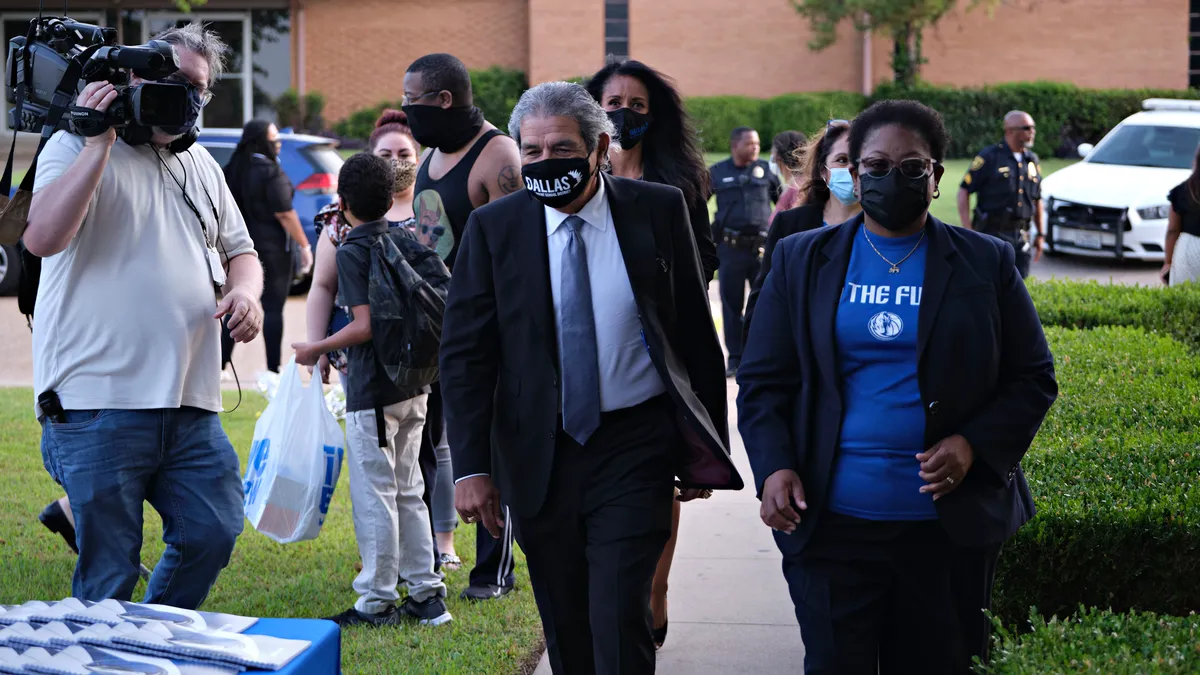



 Dive Awards
Dive Awards

